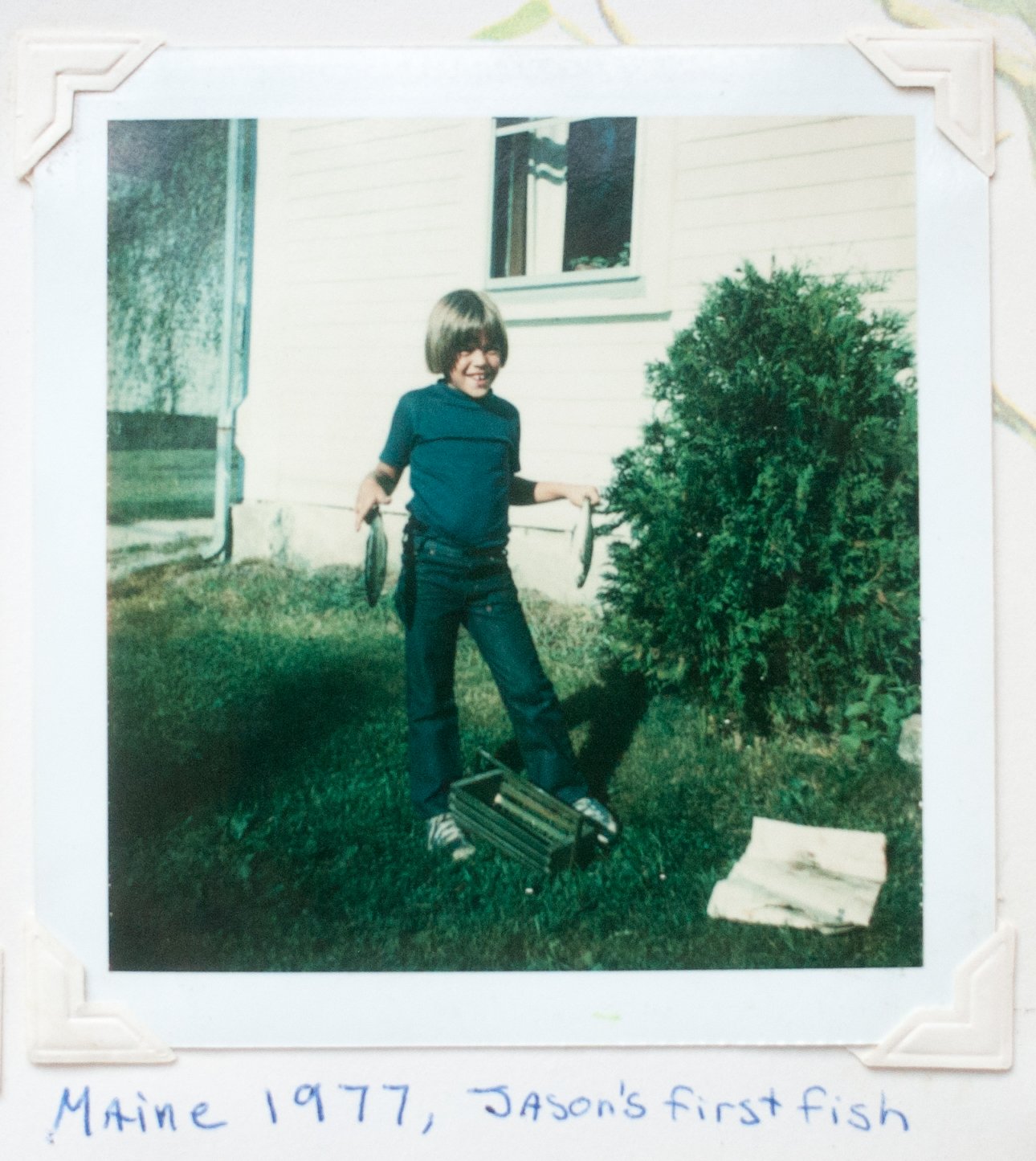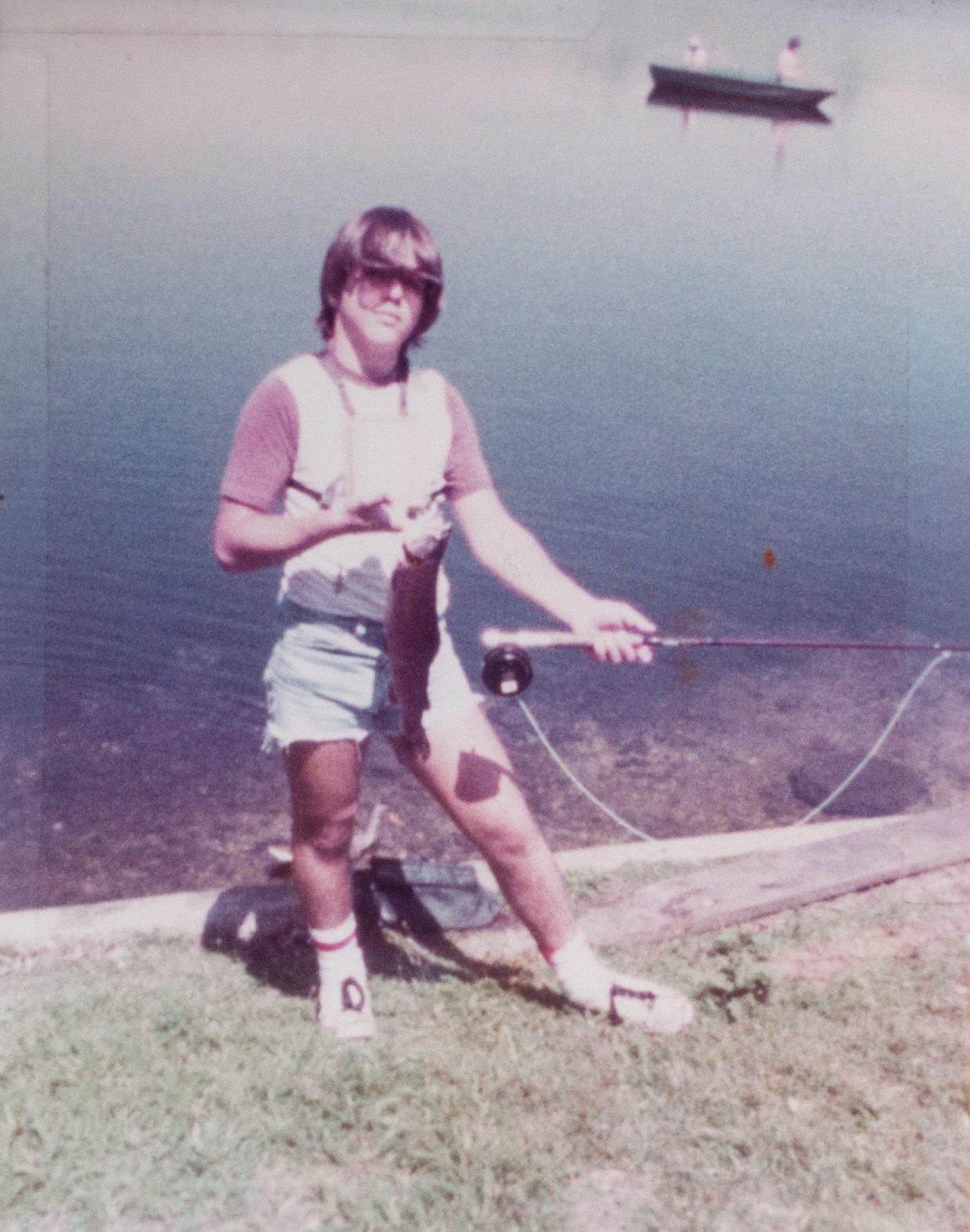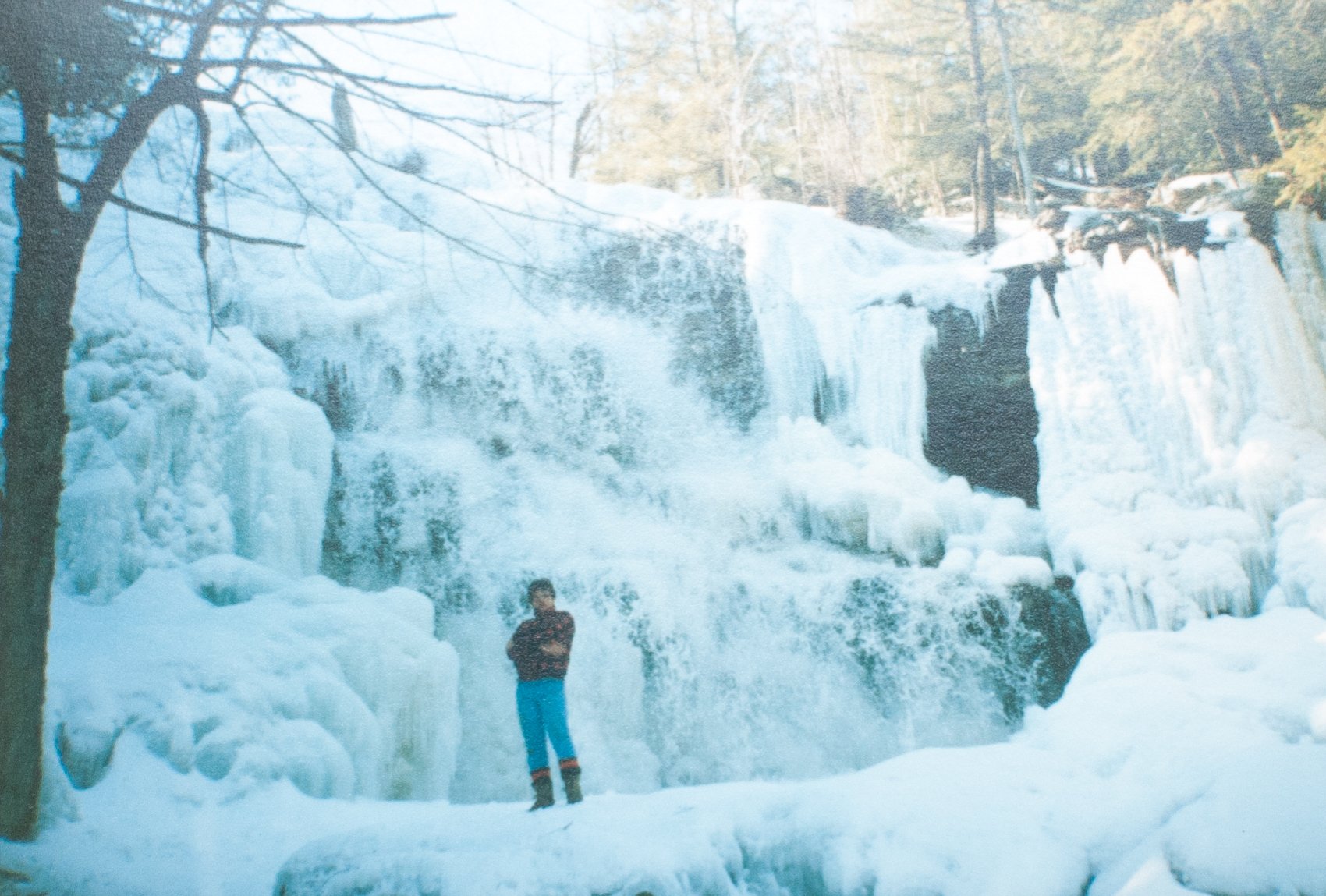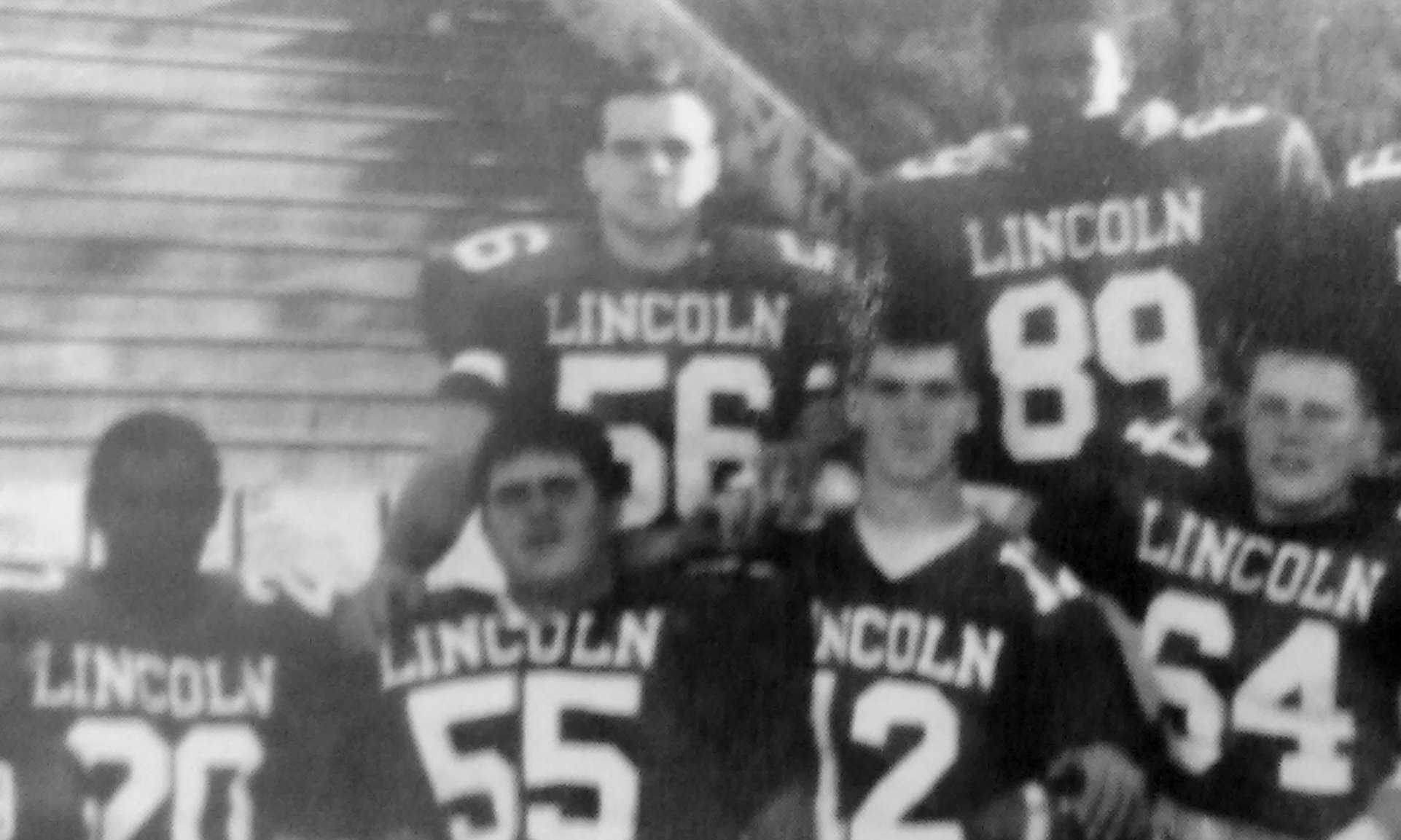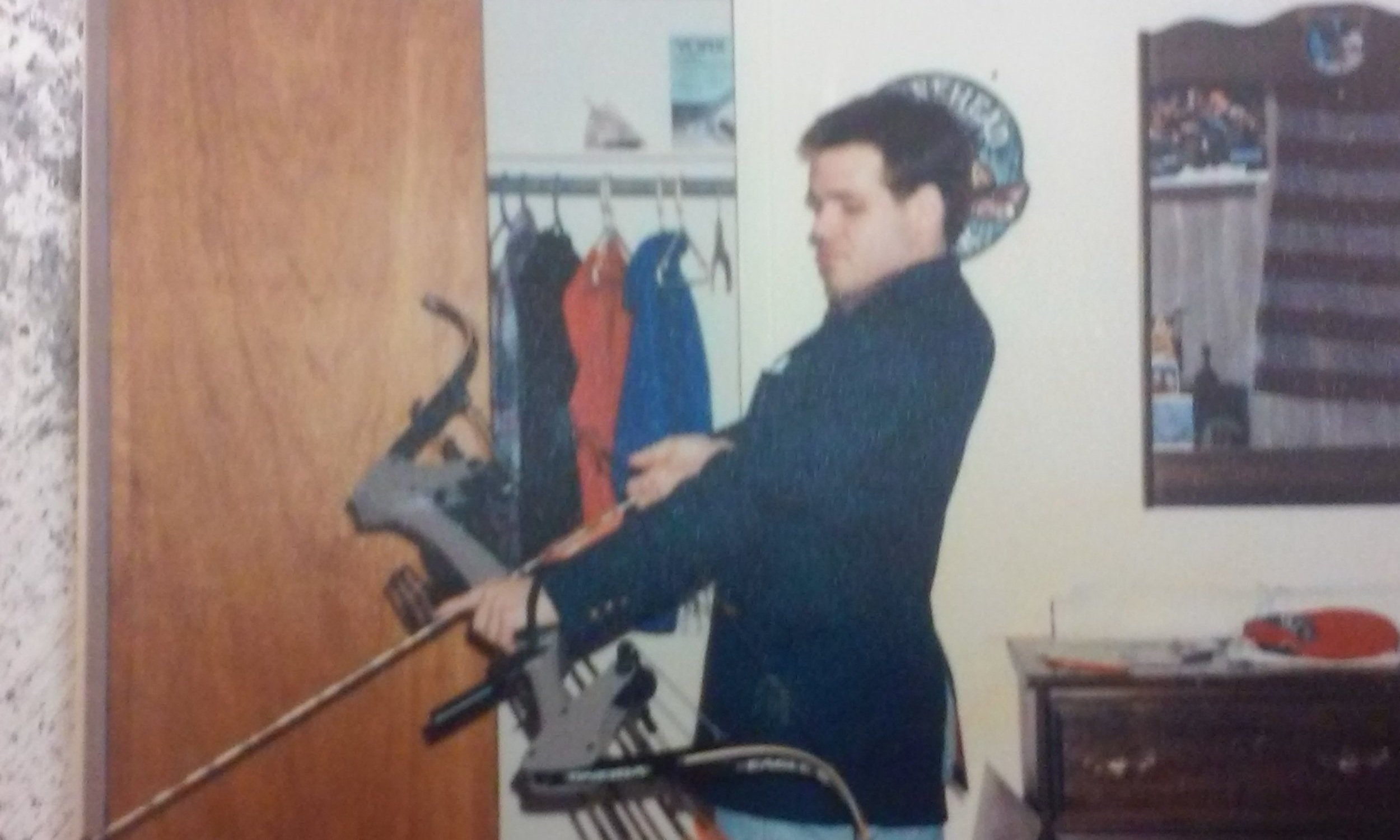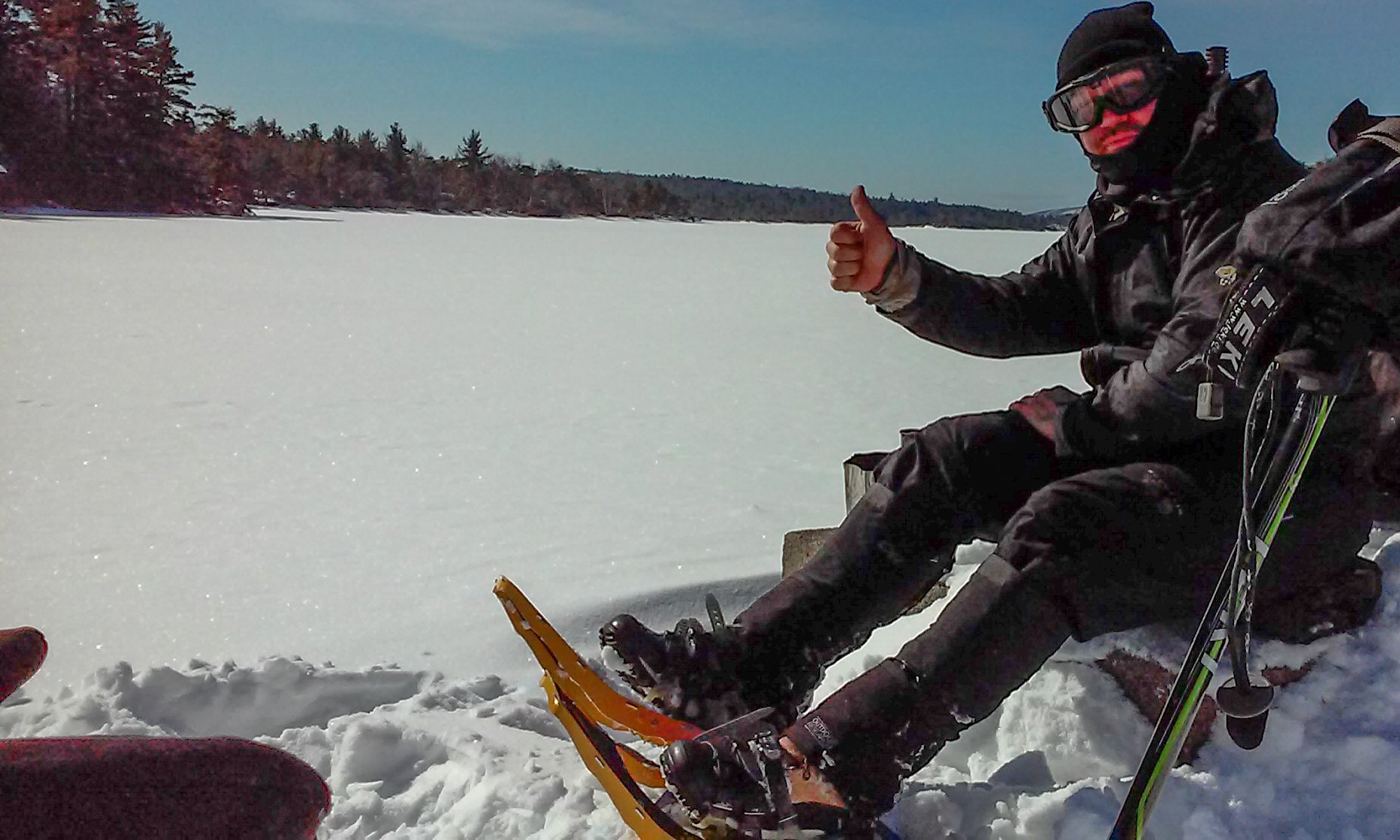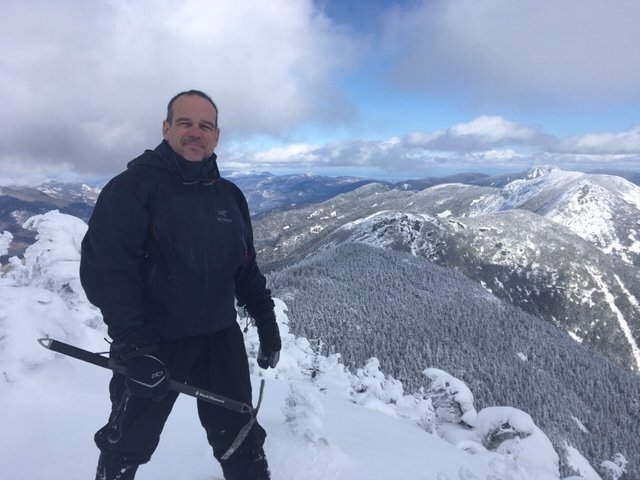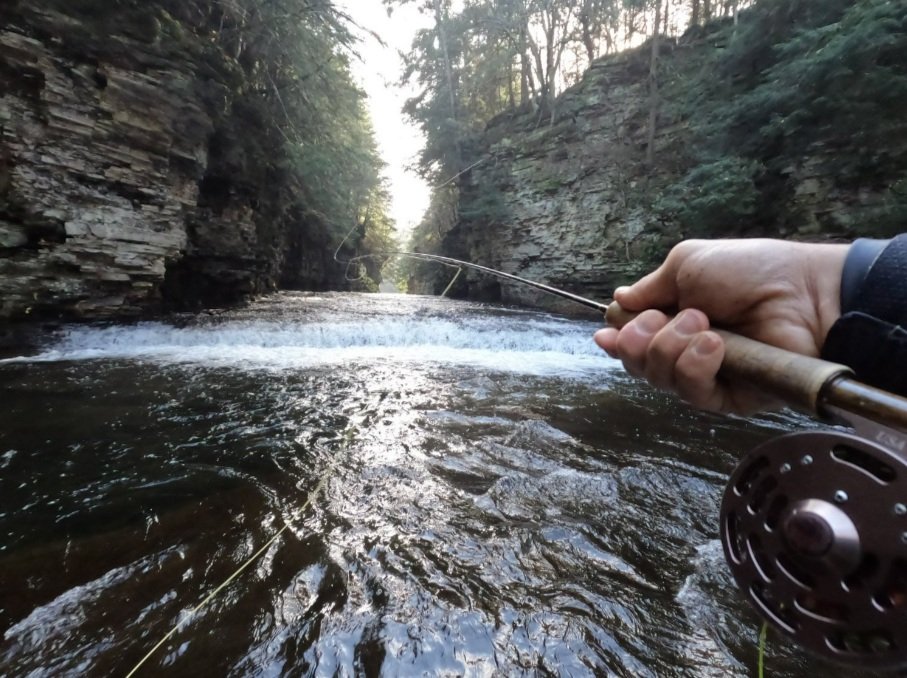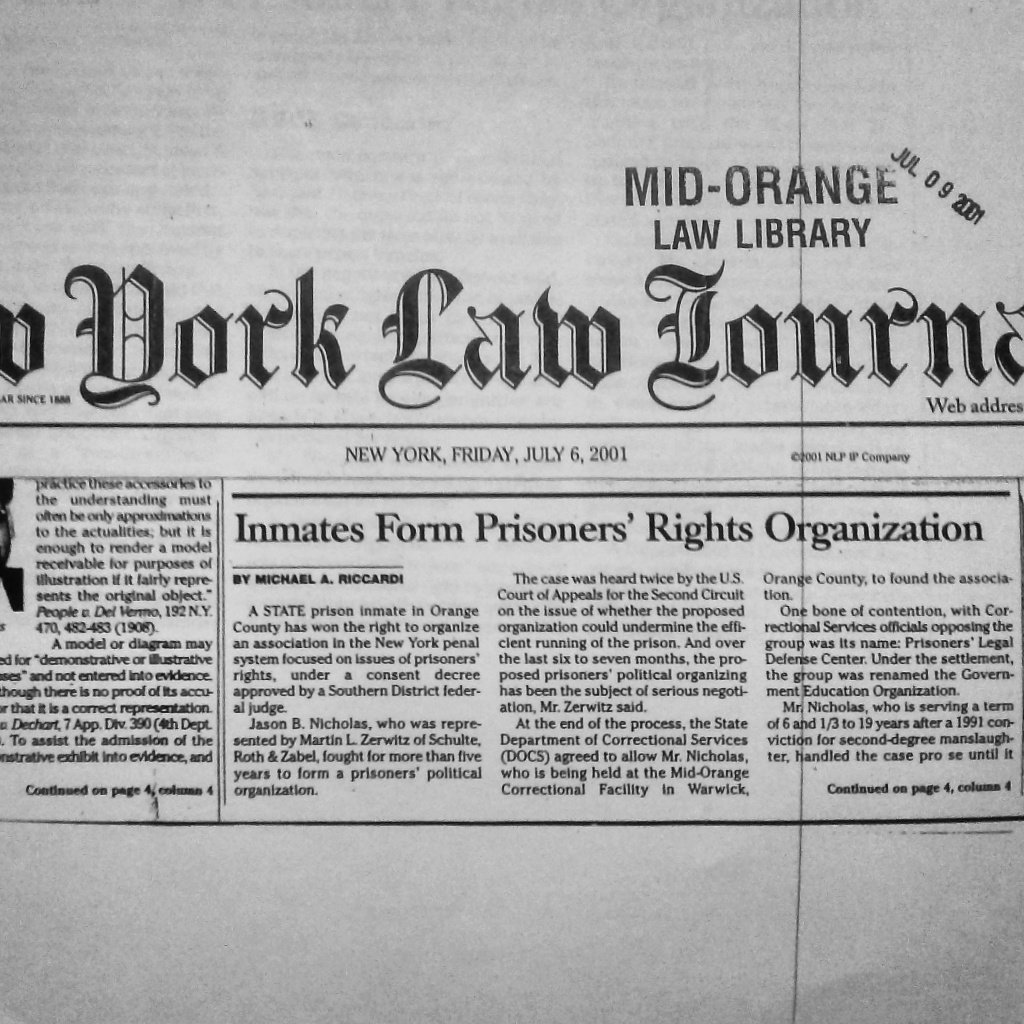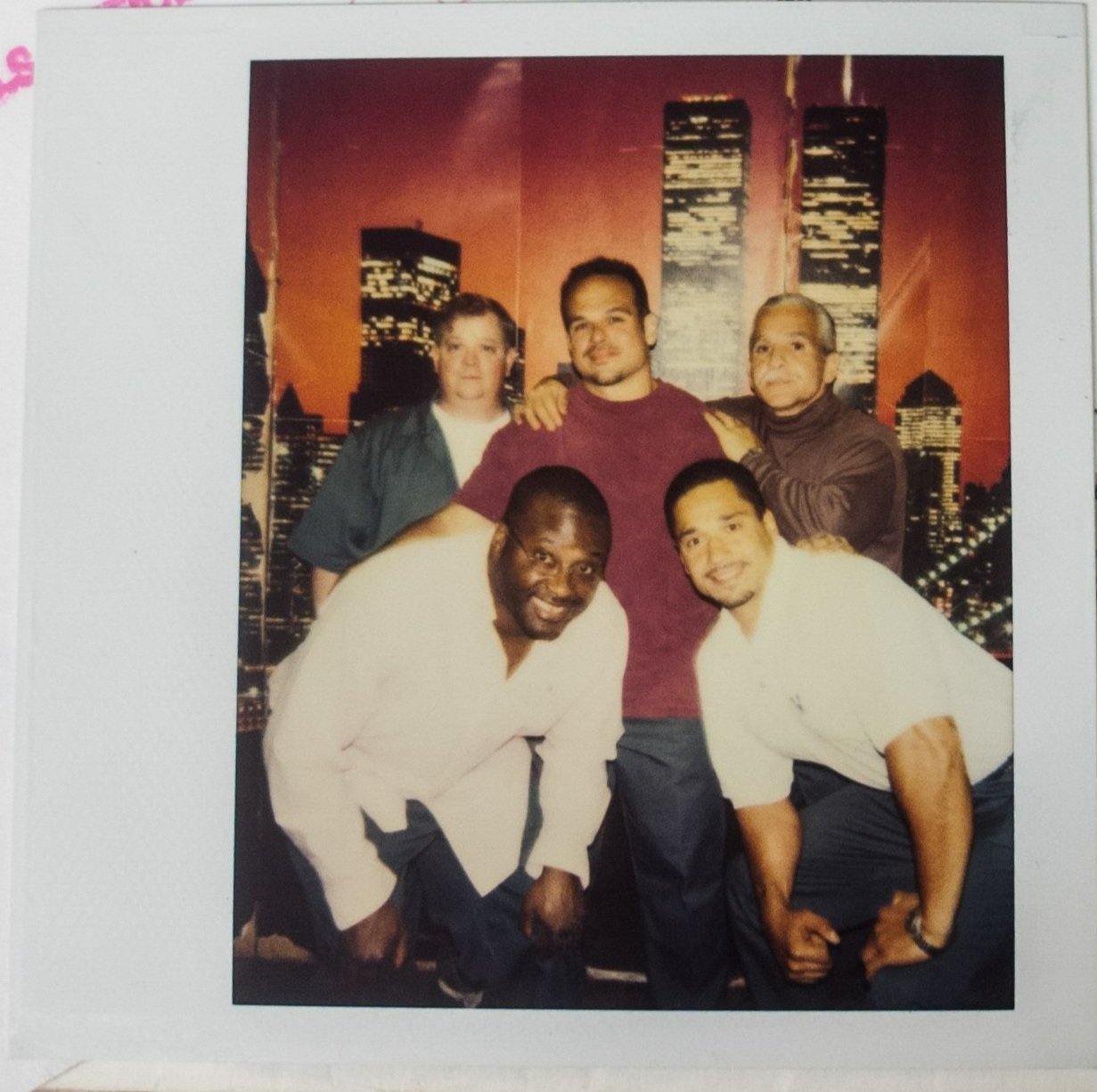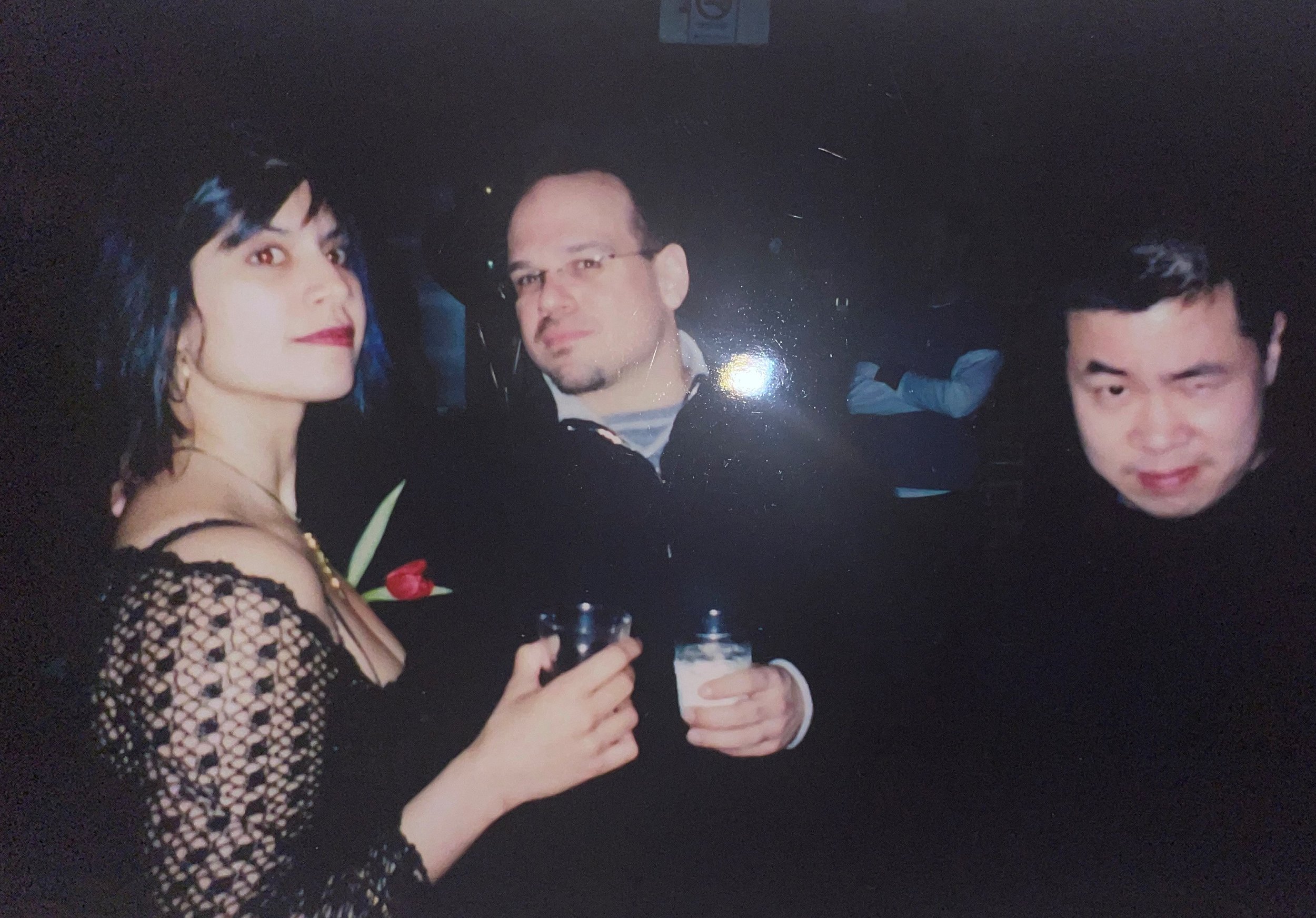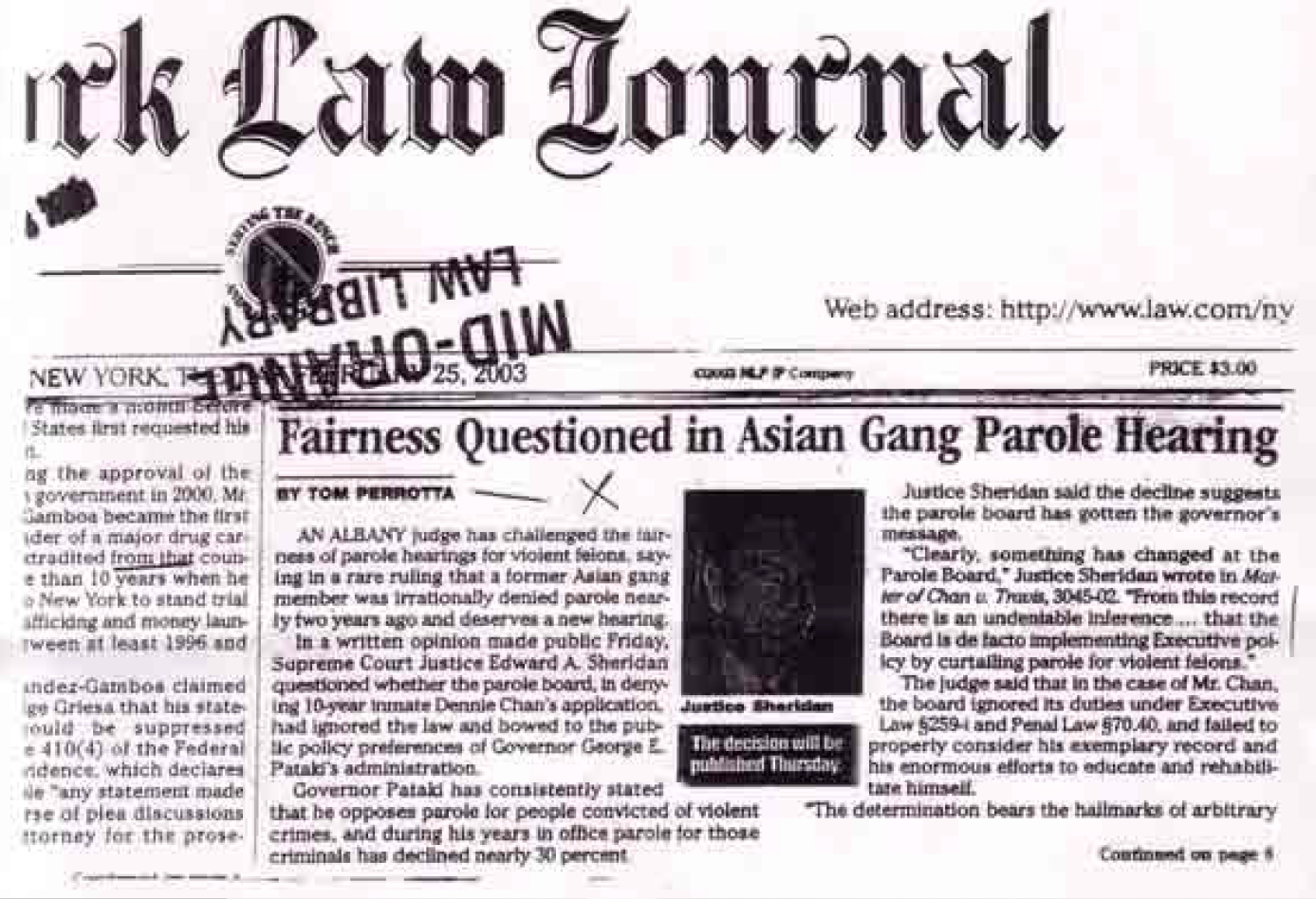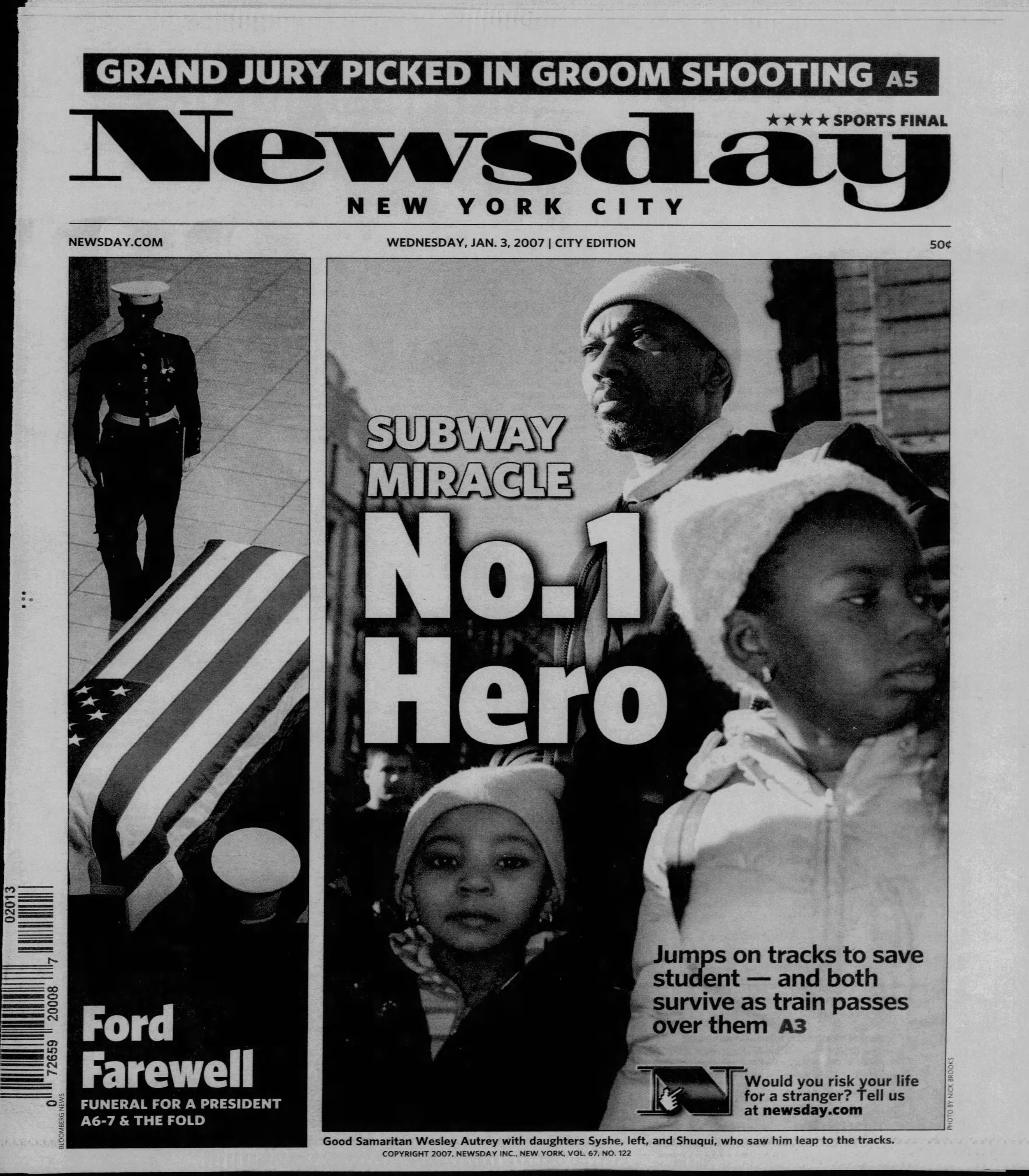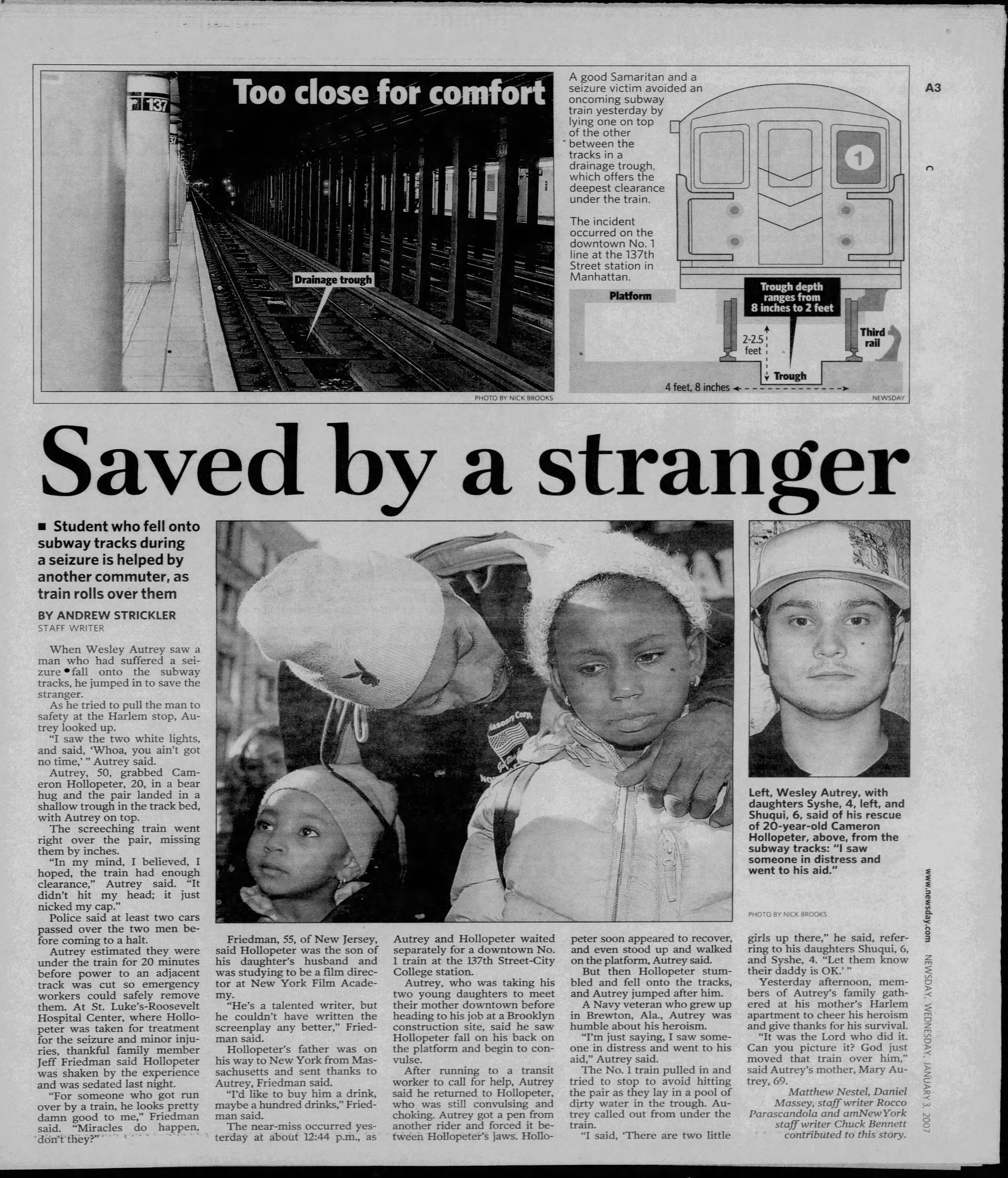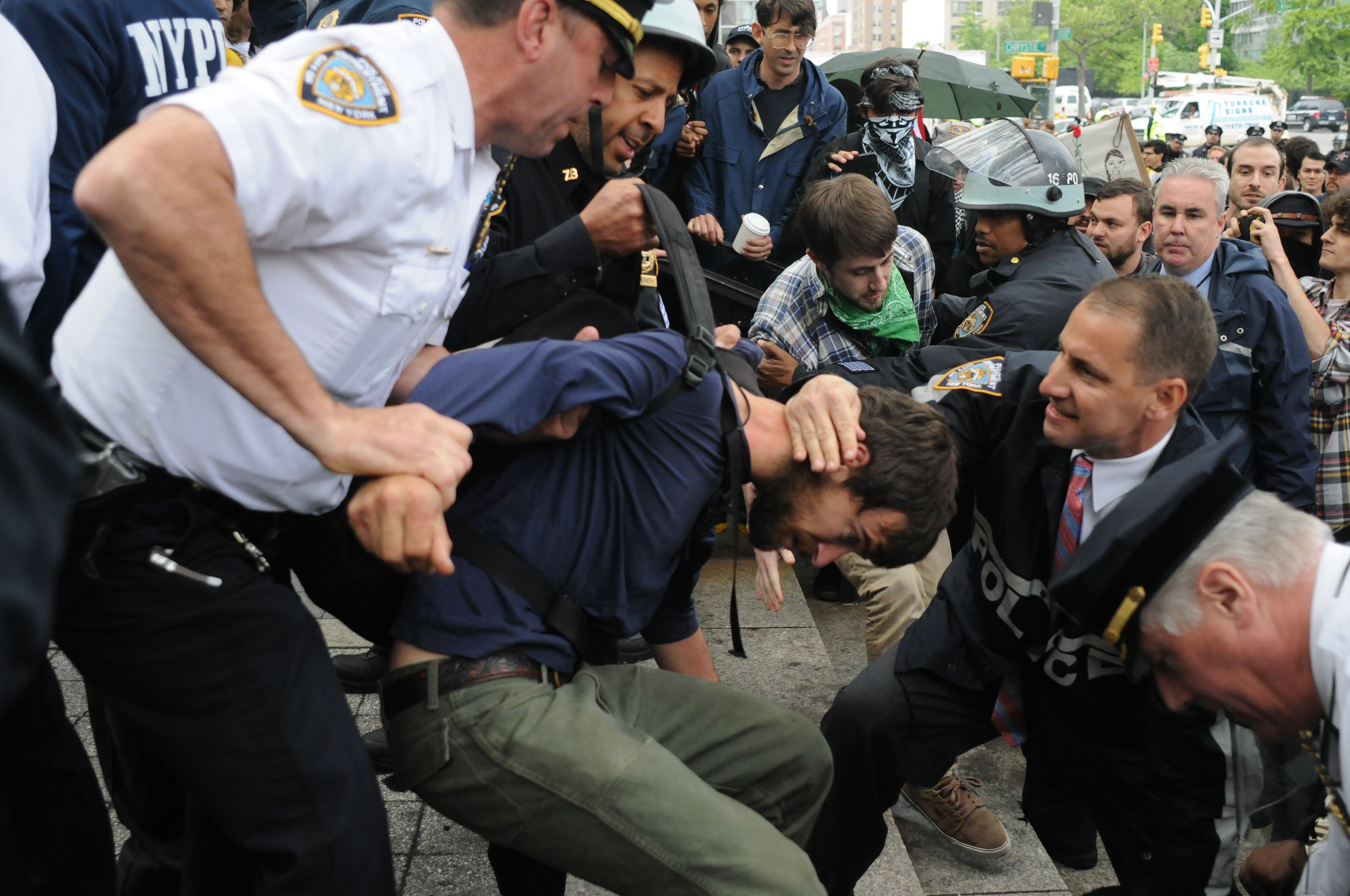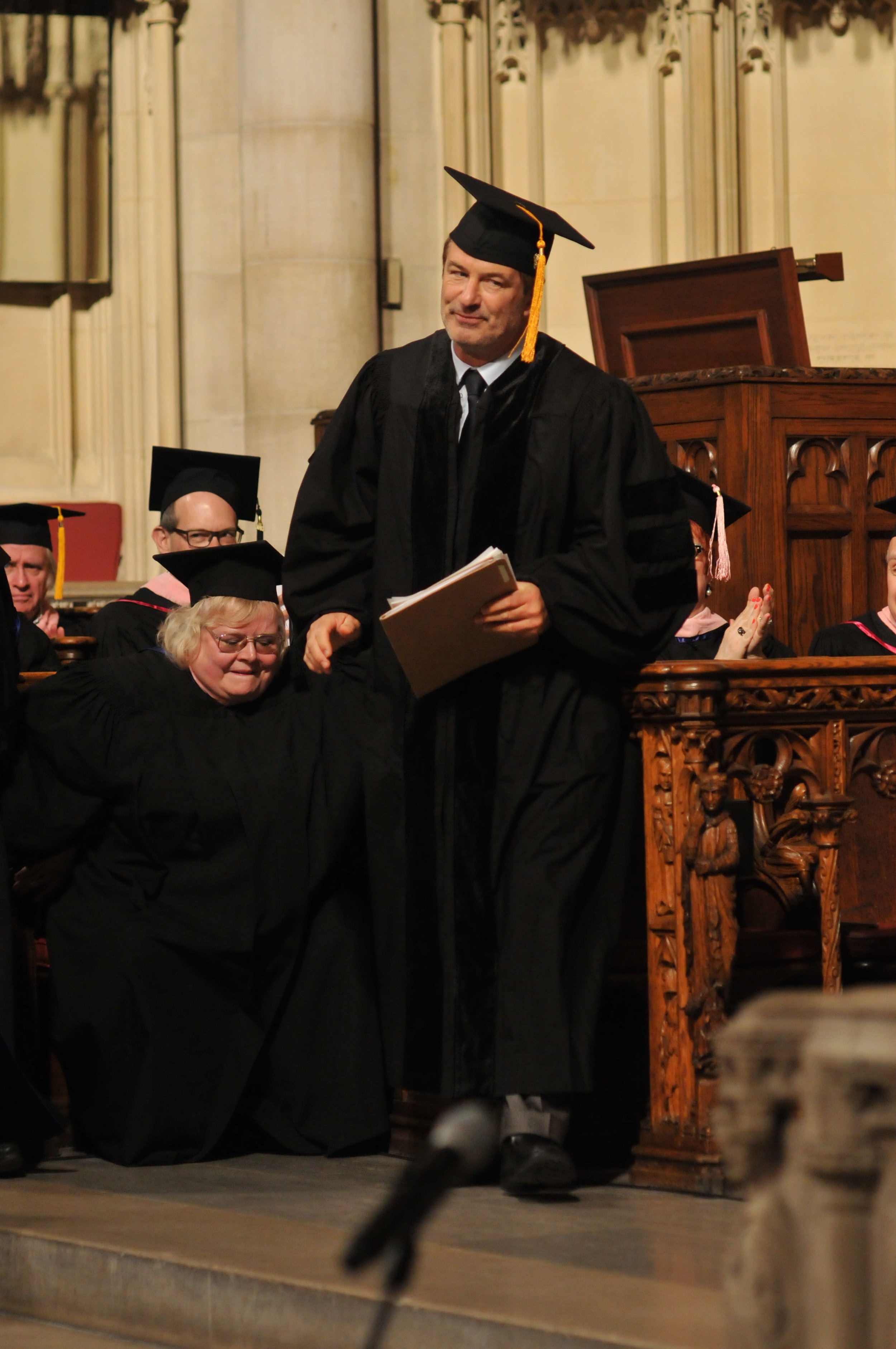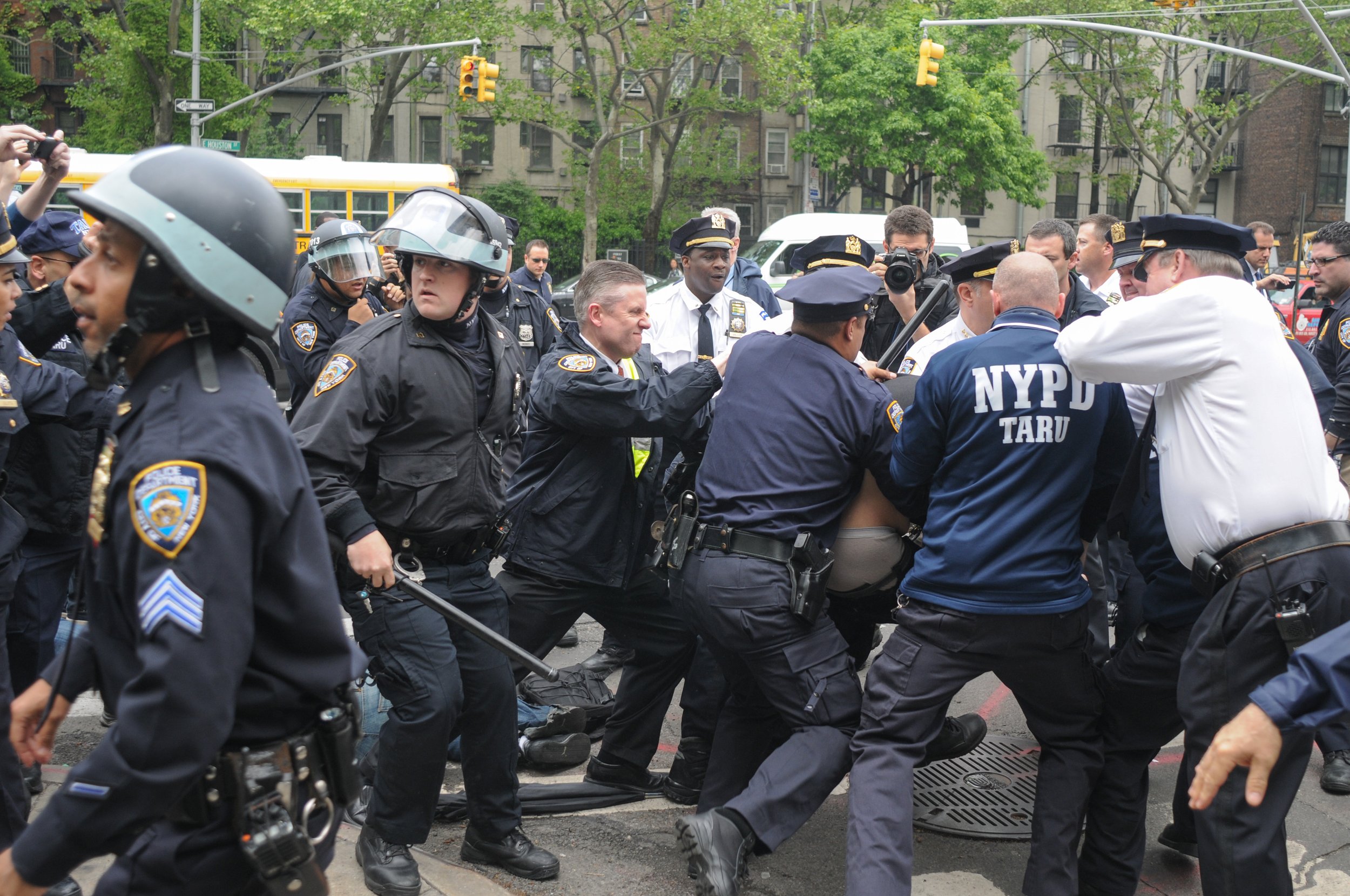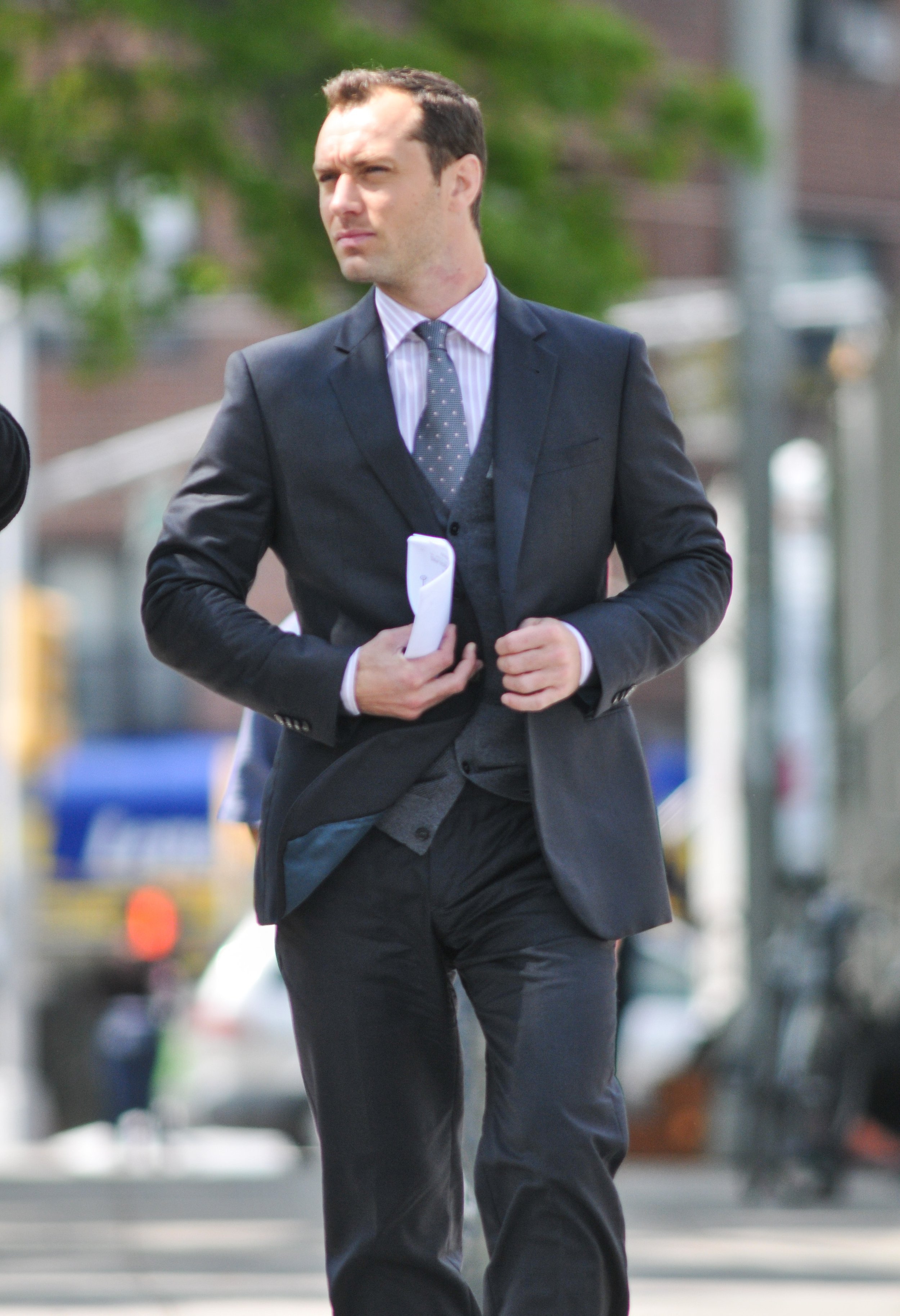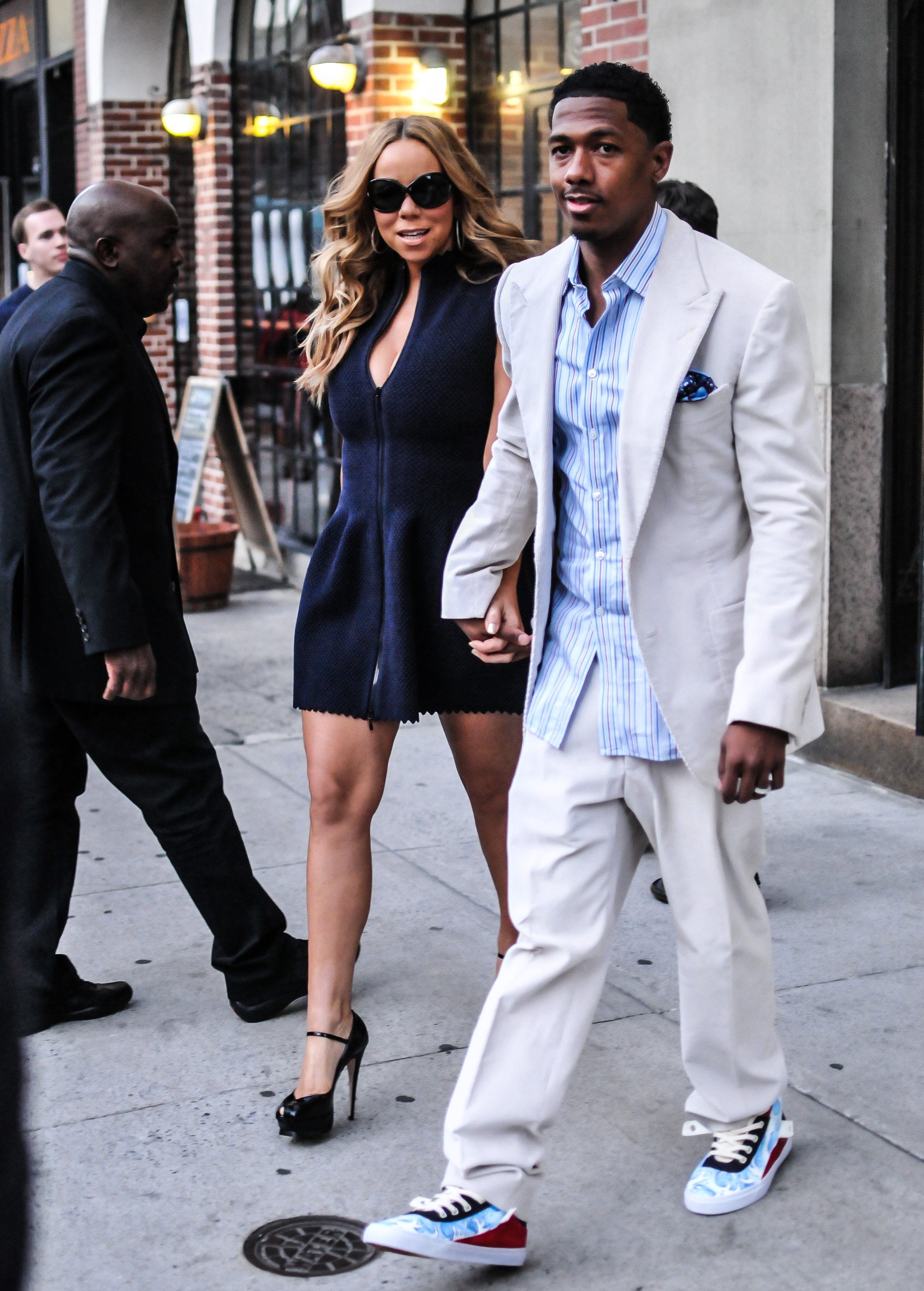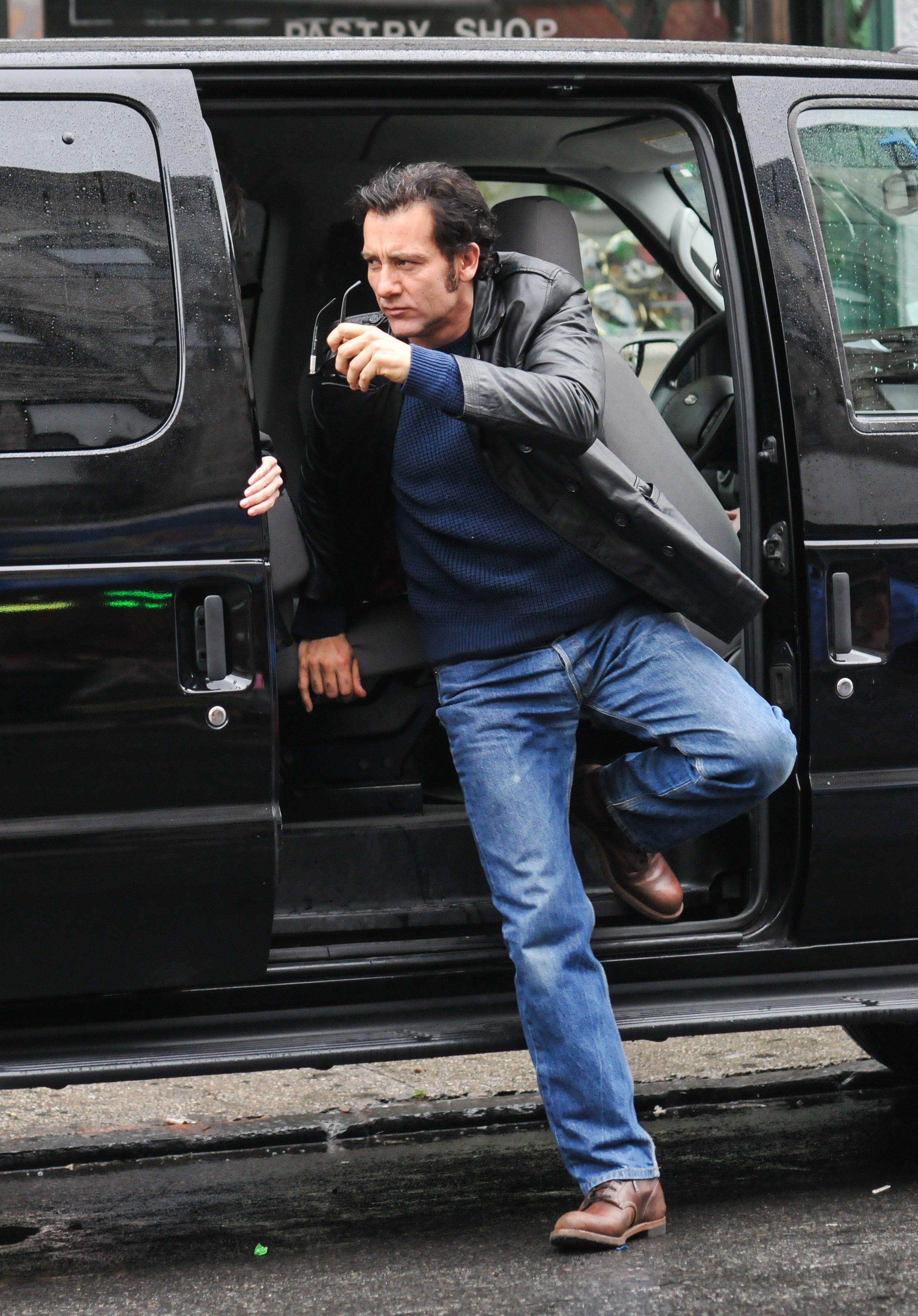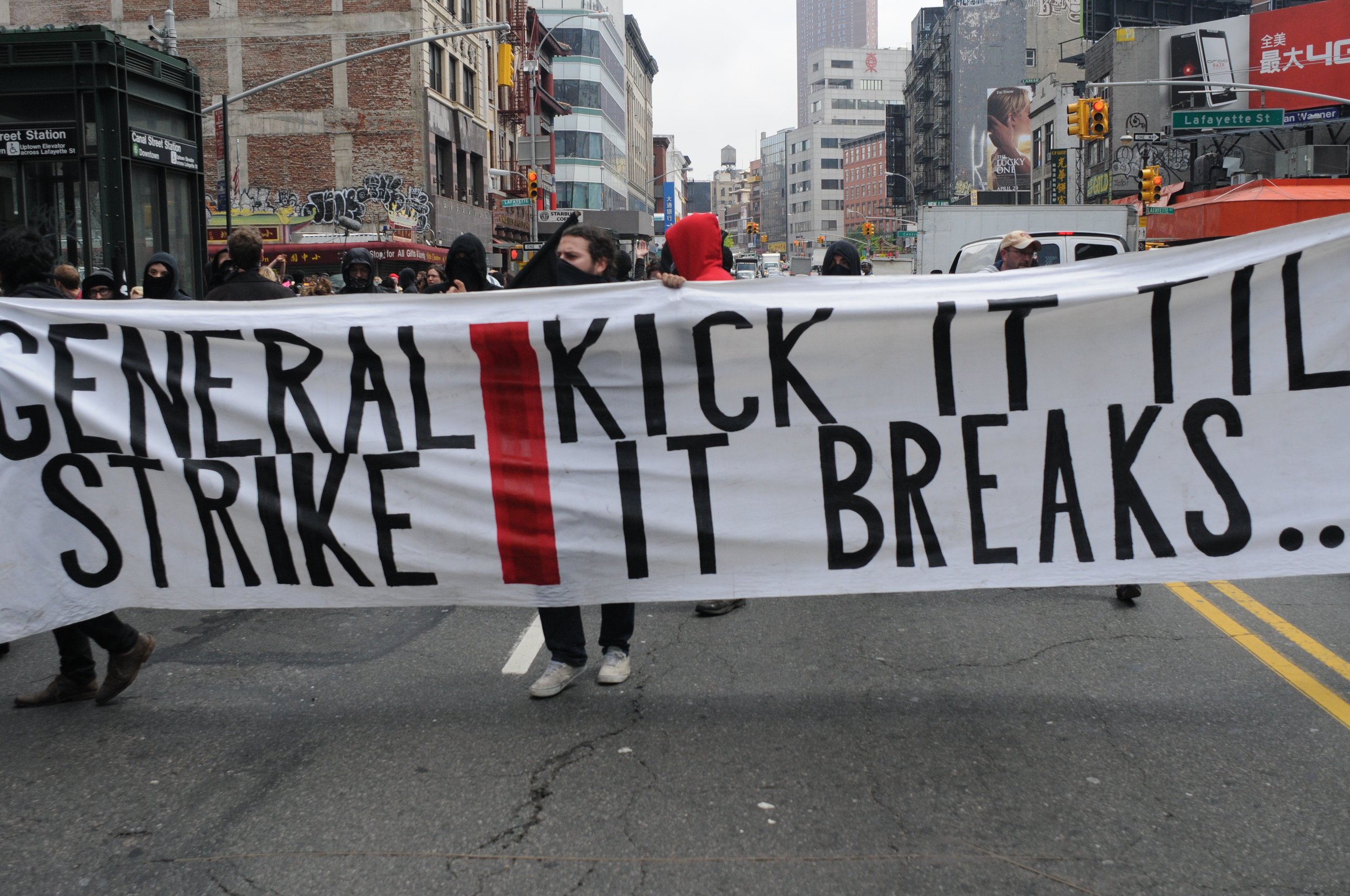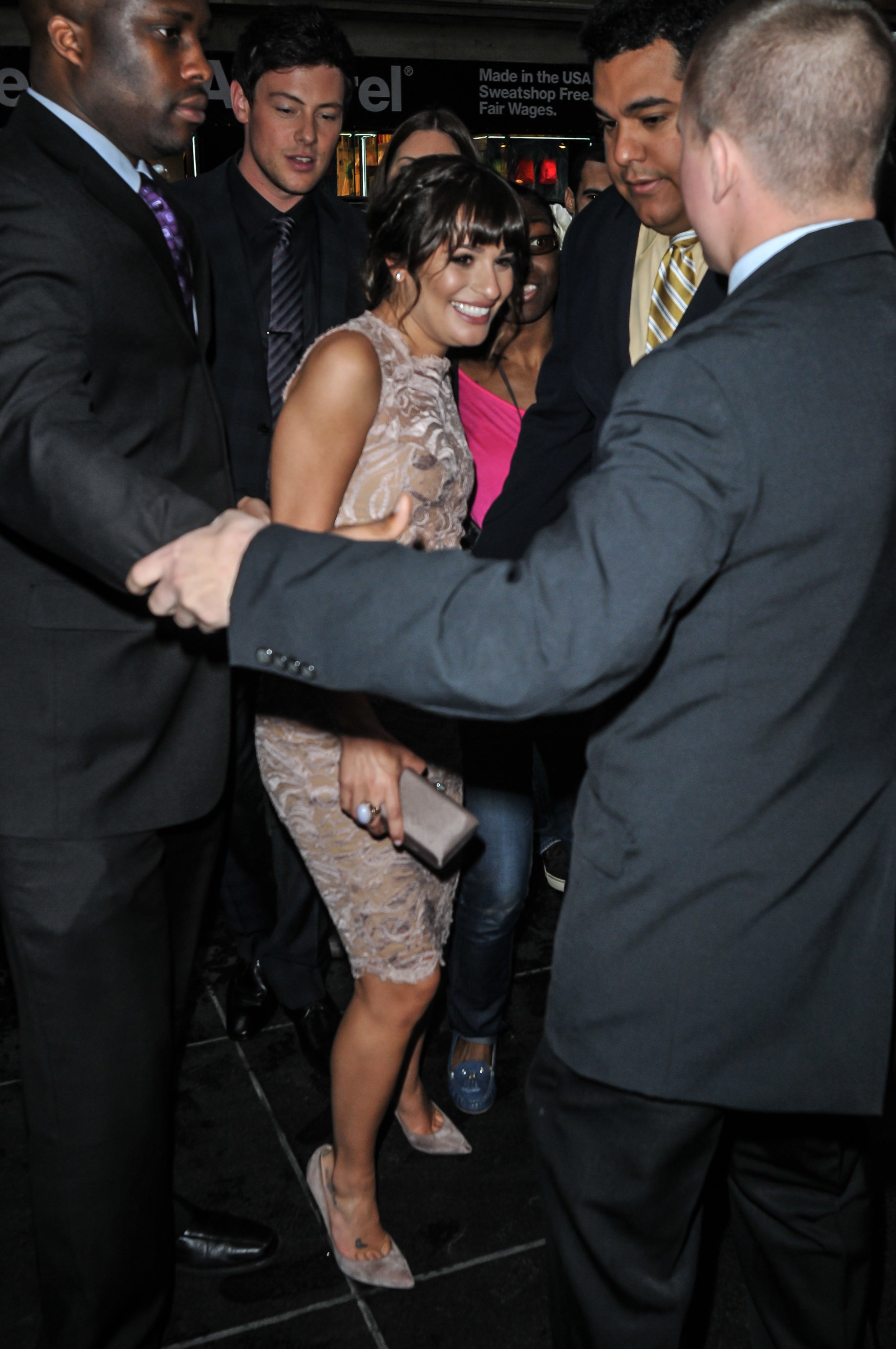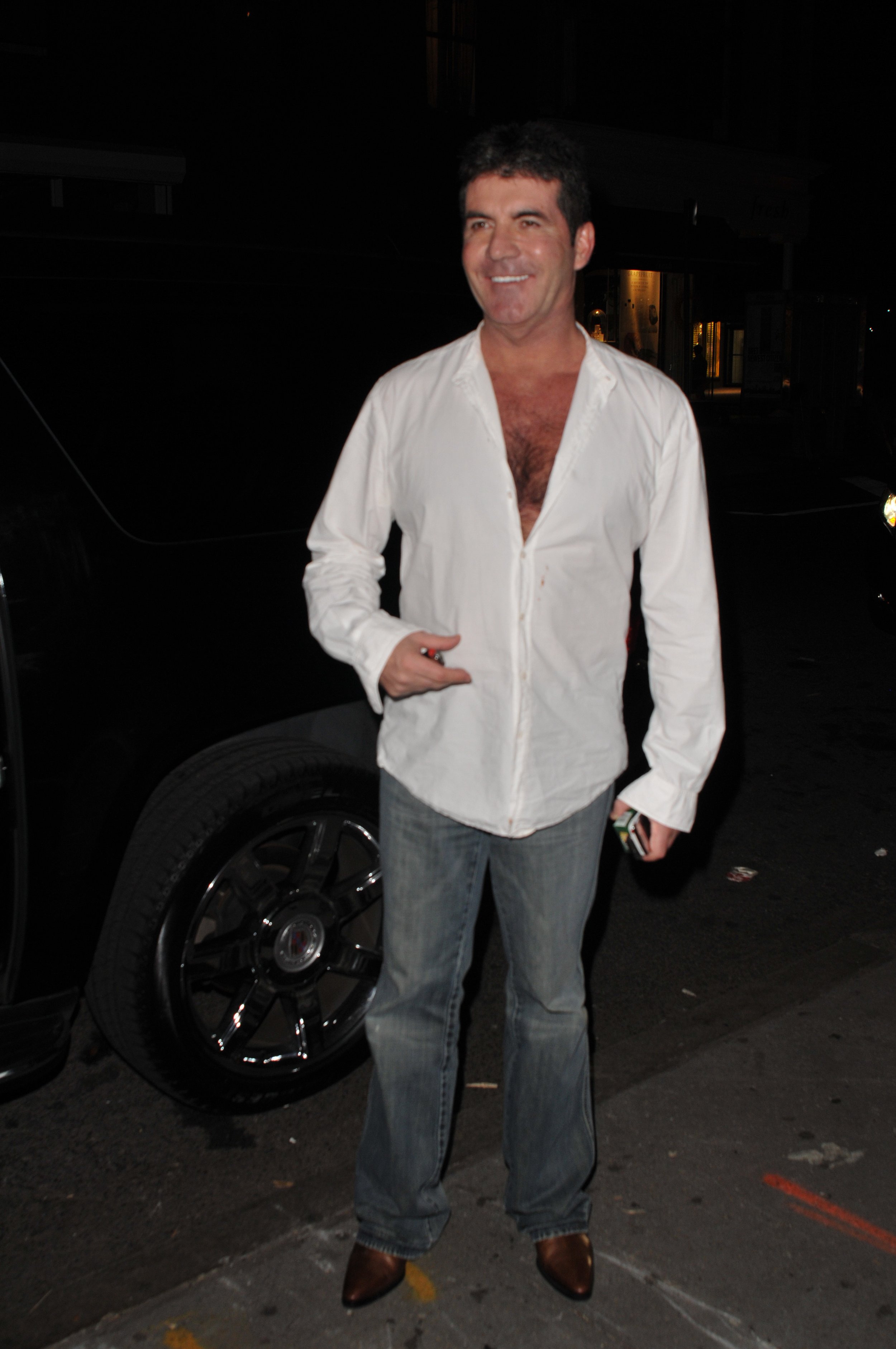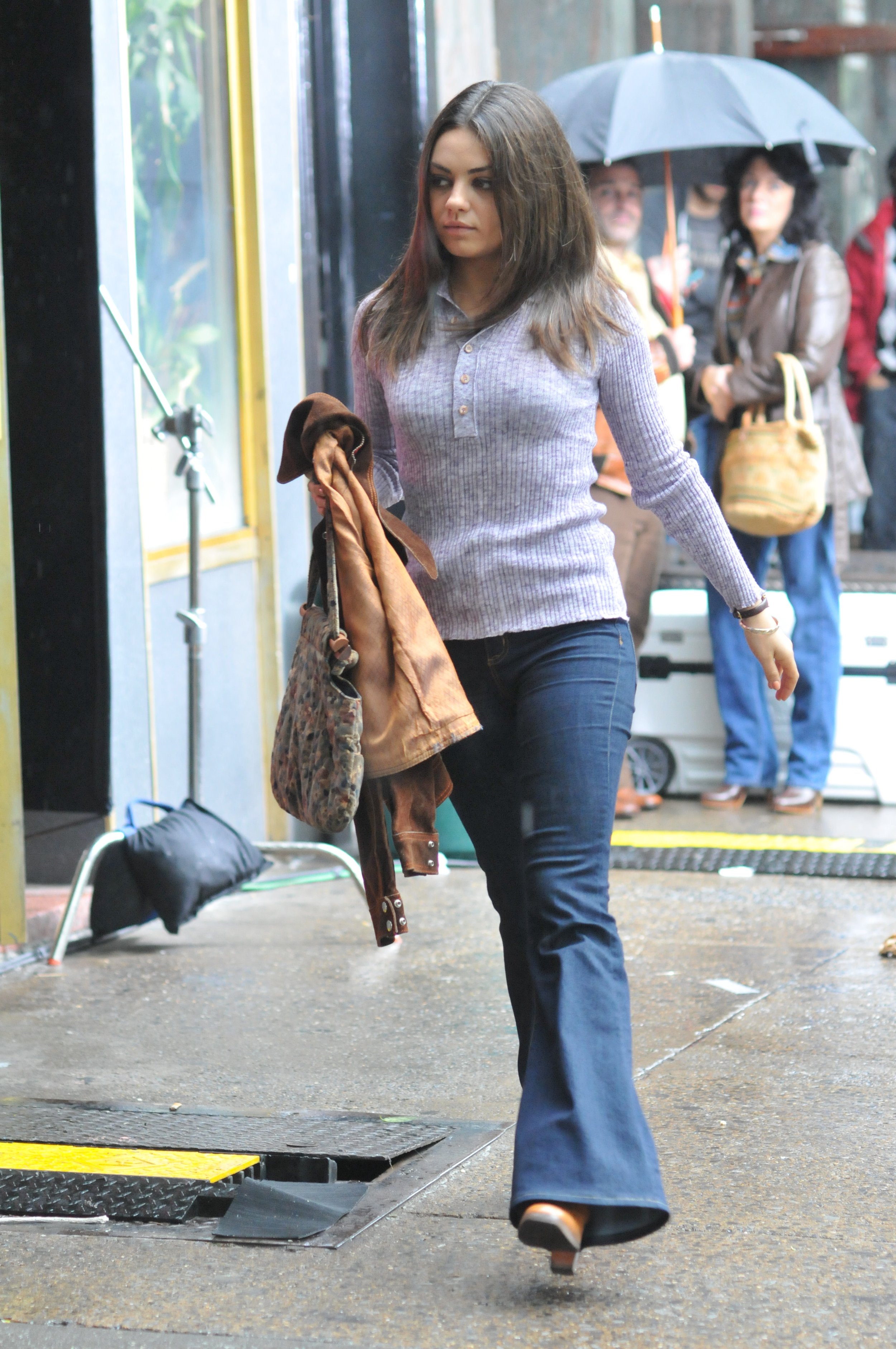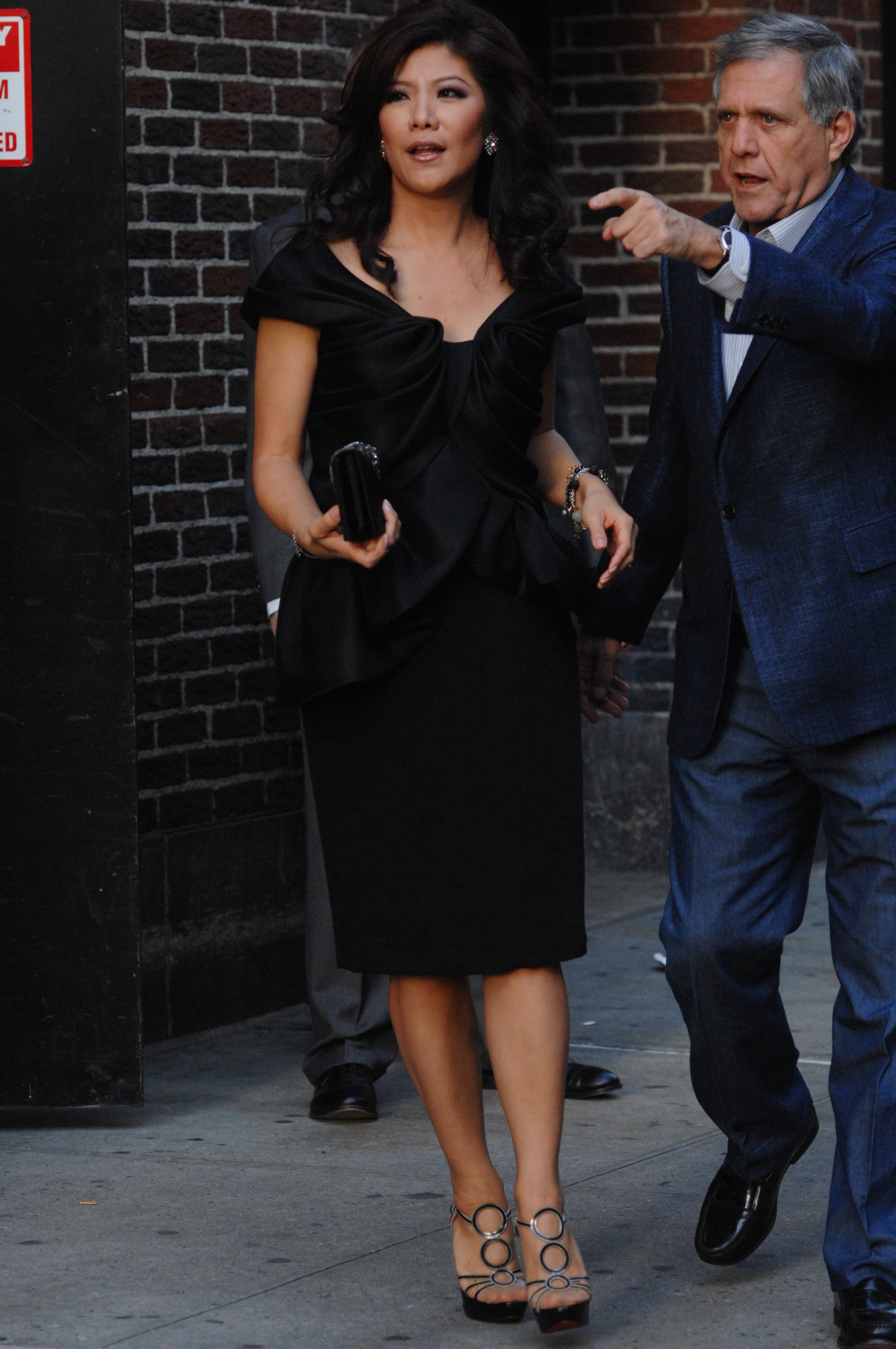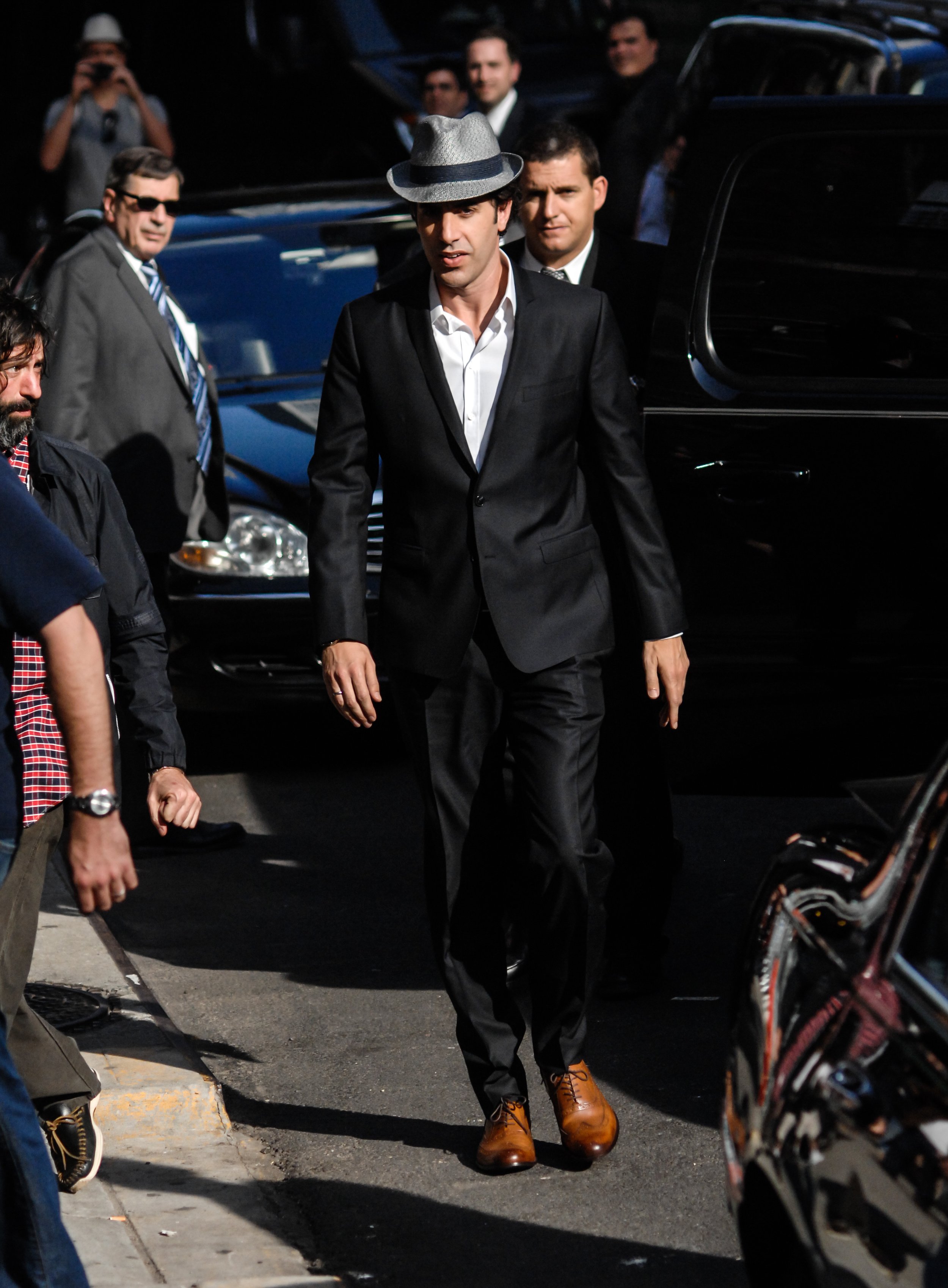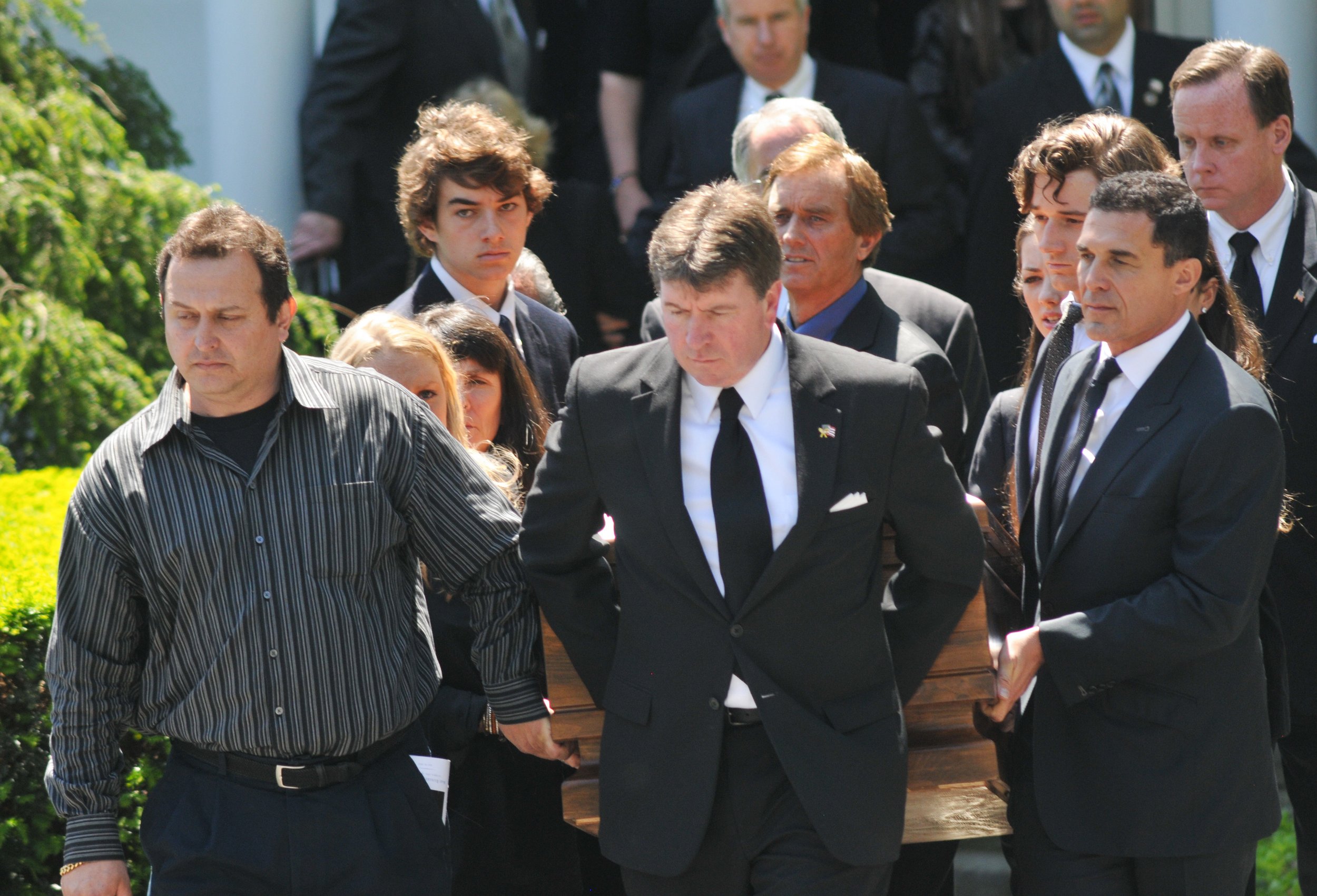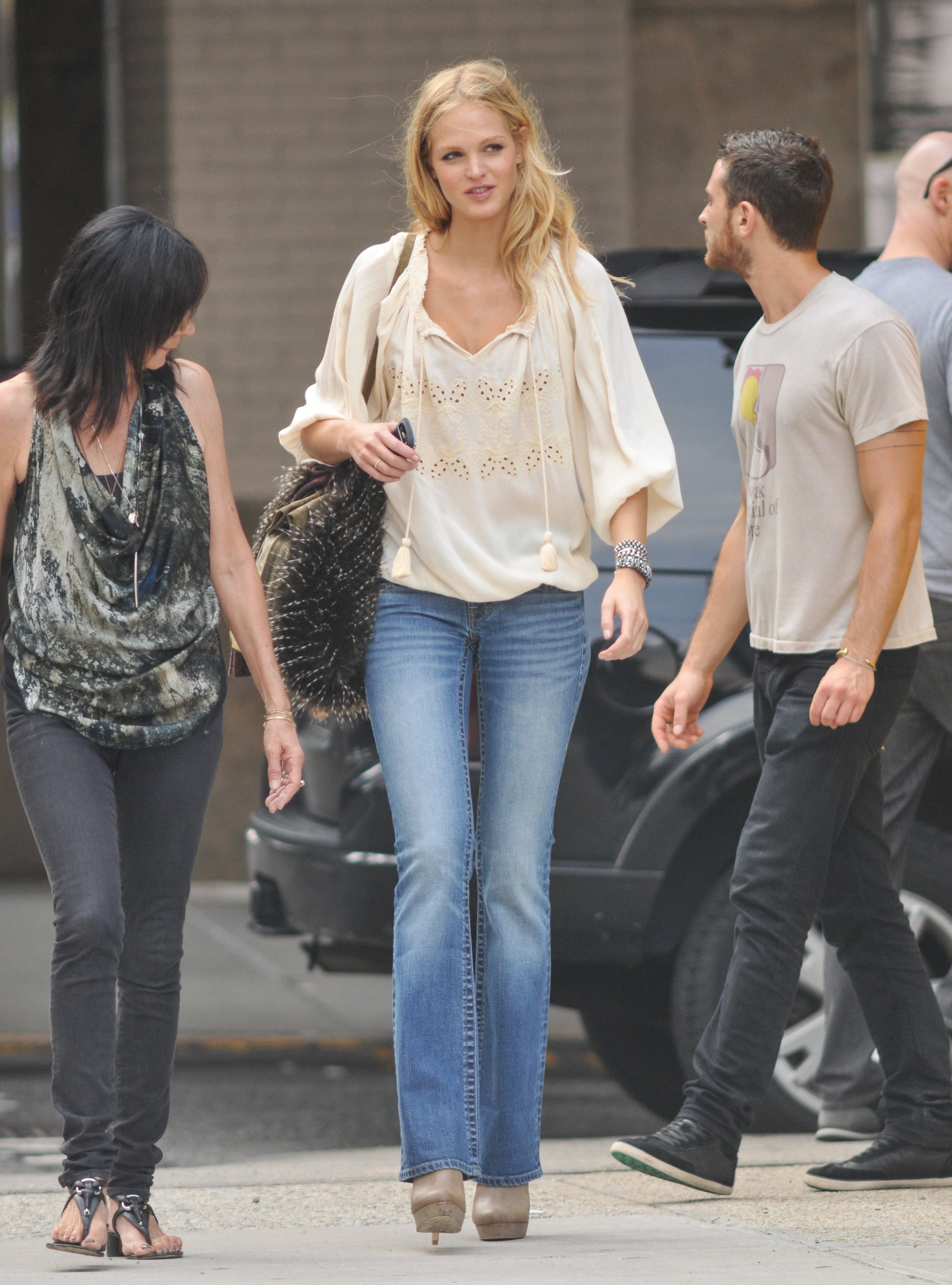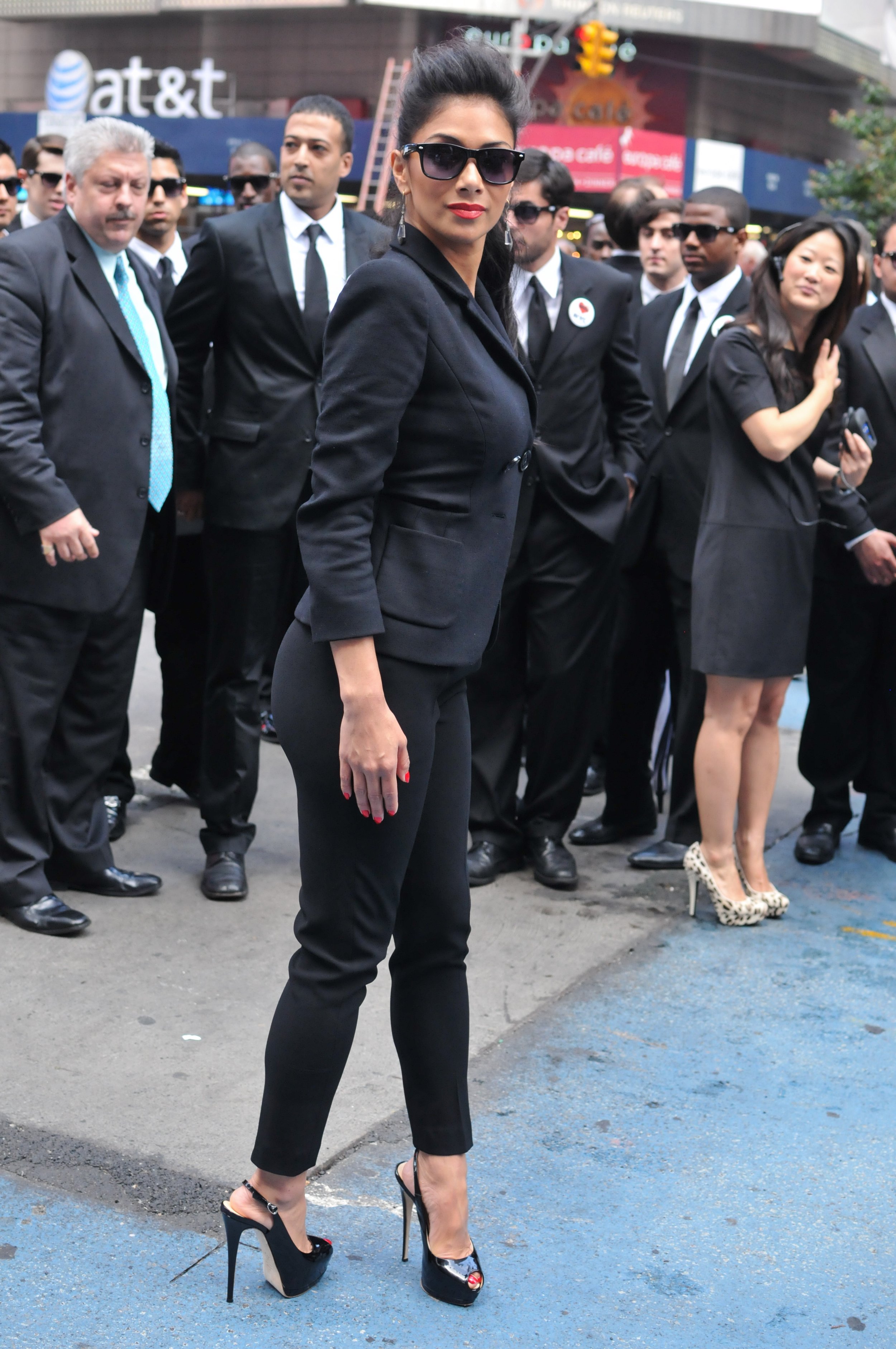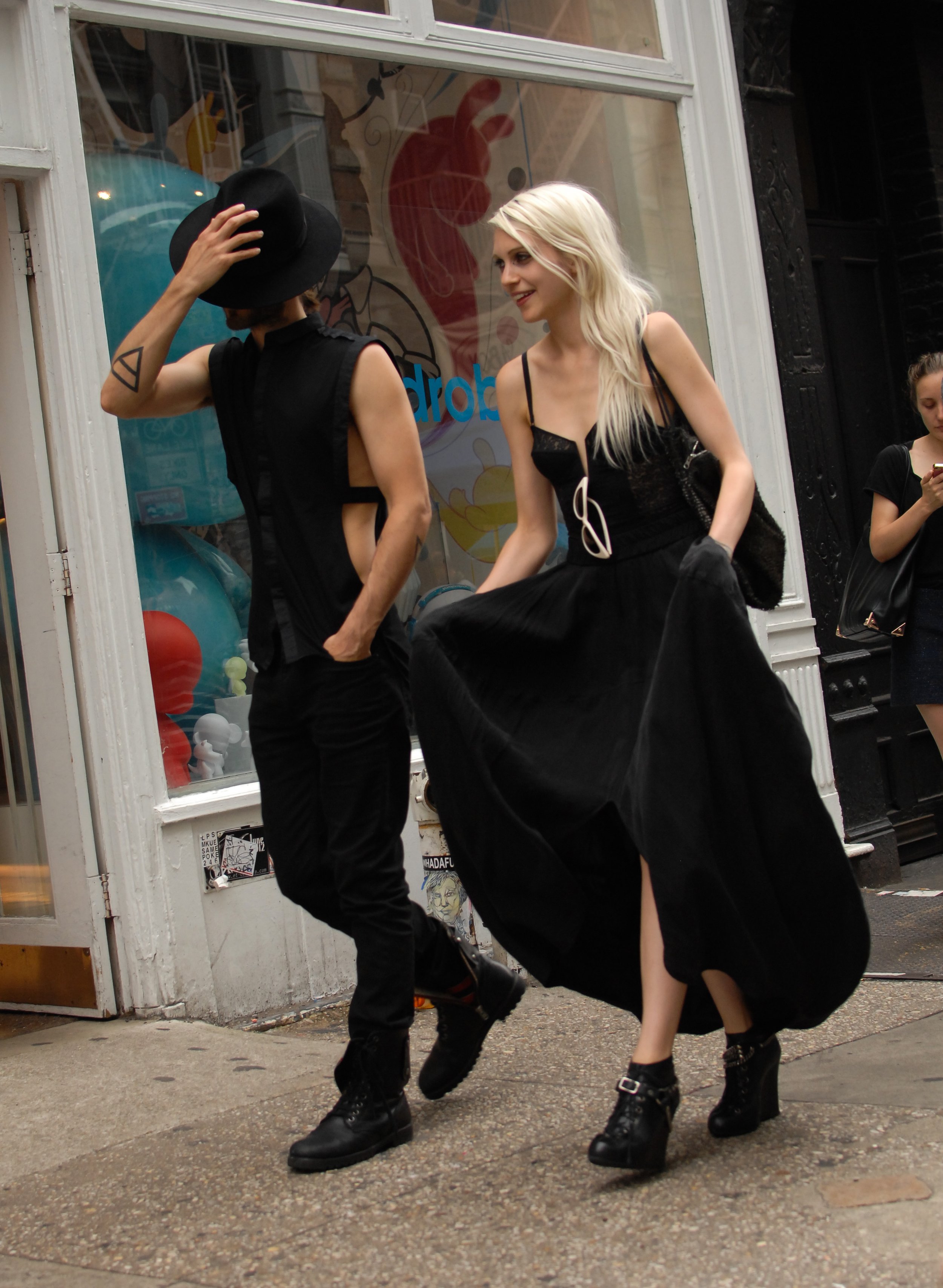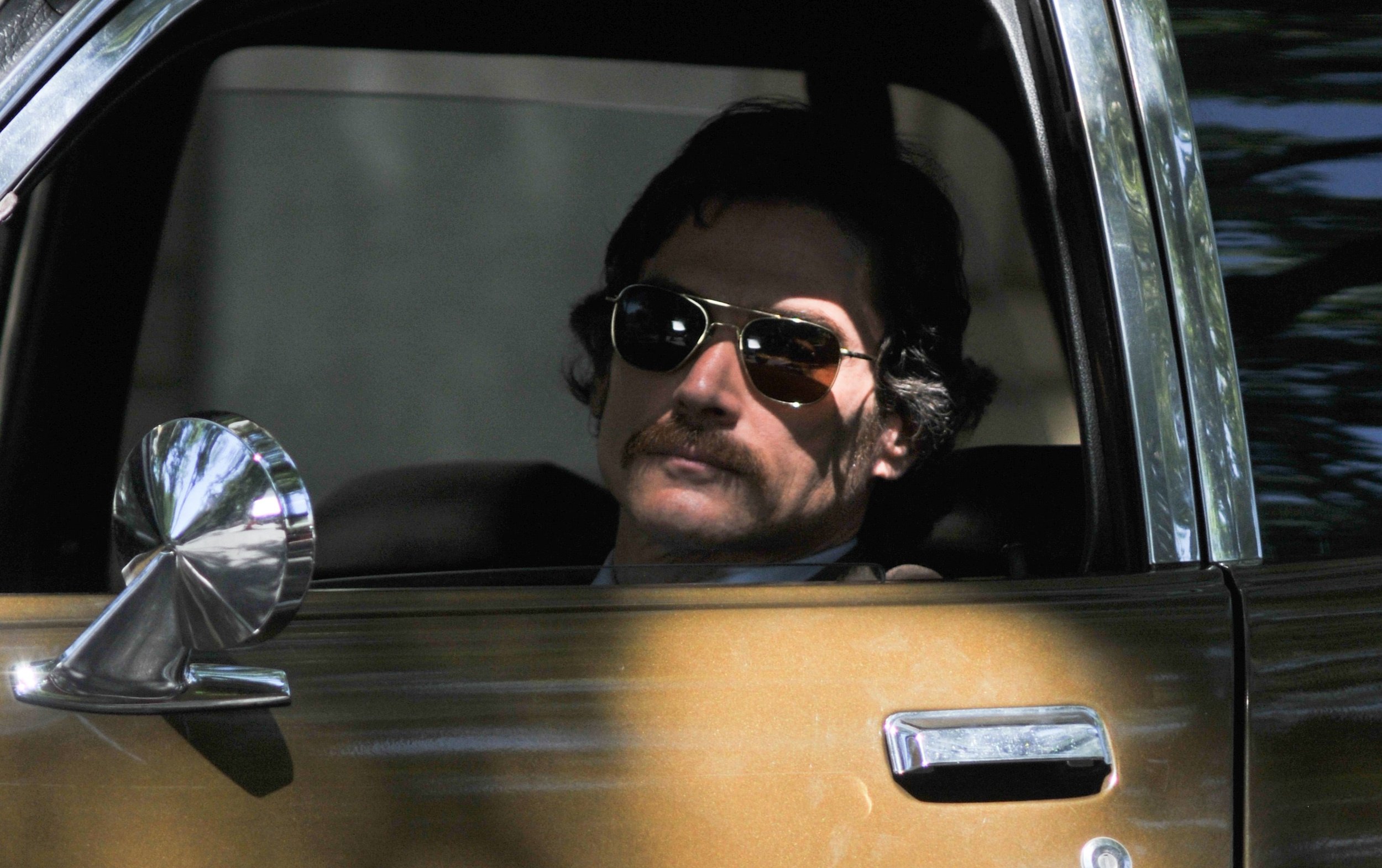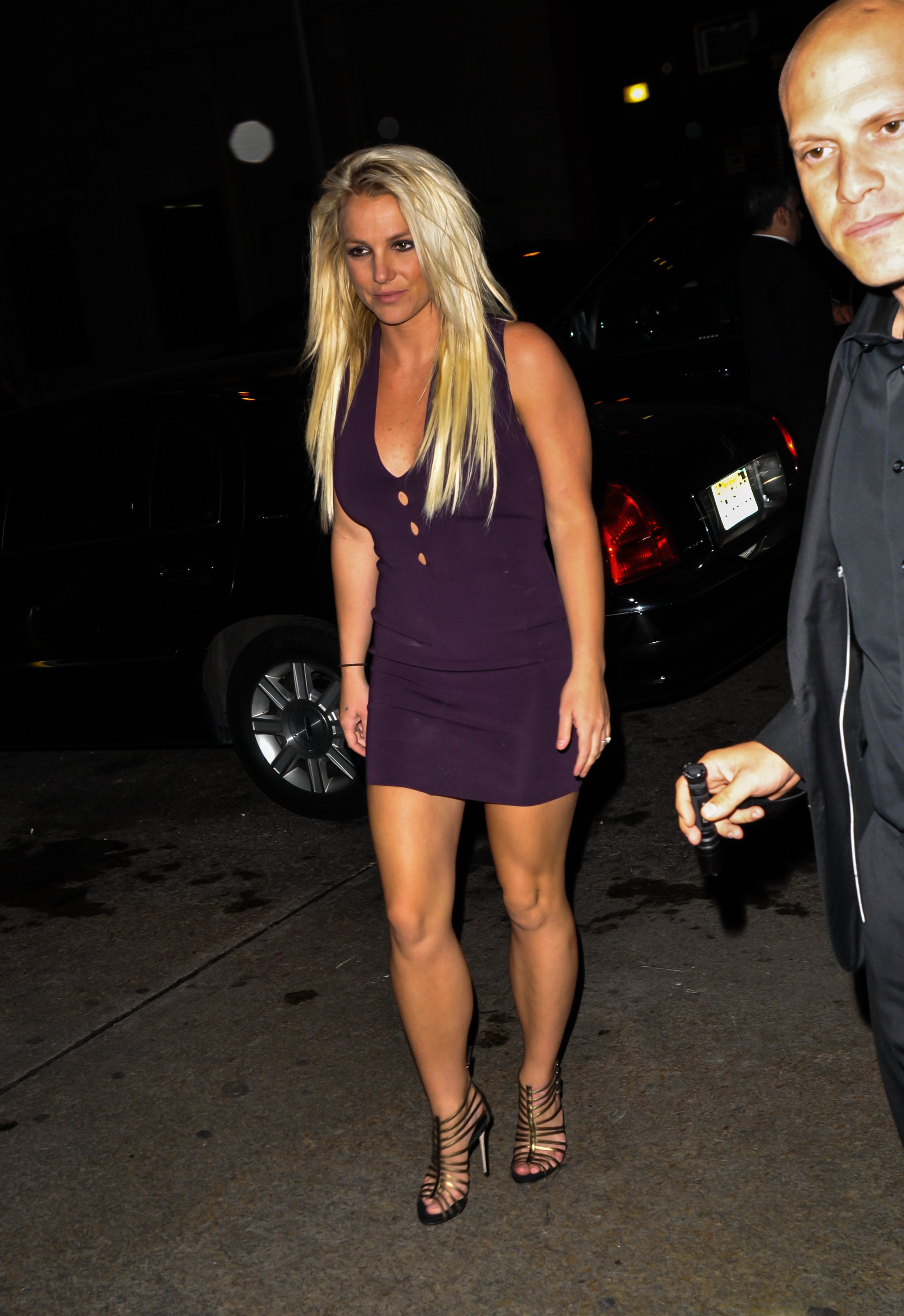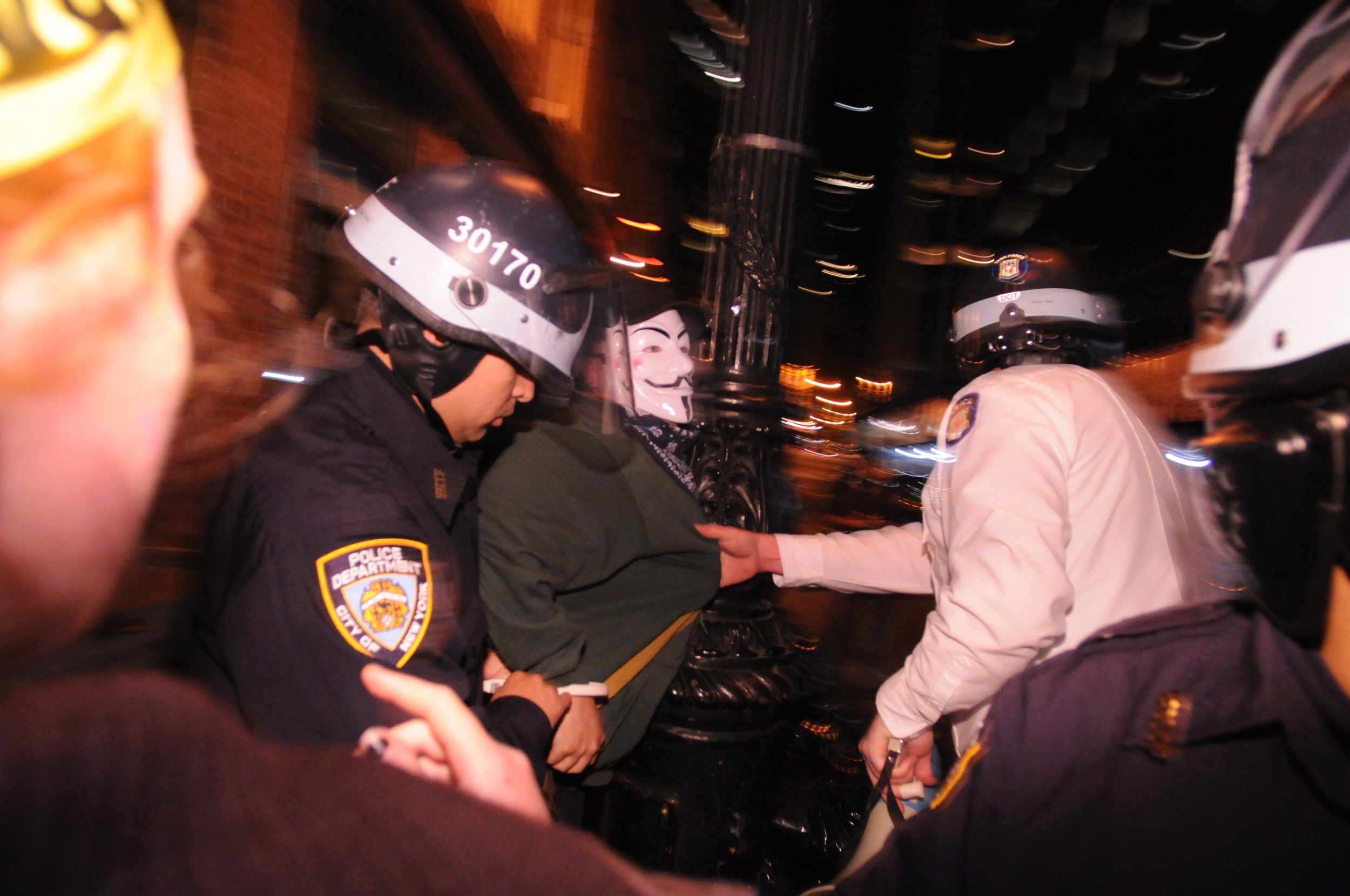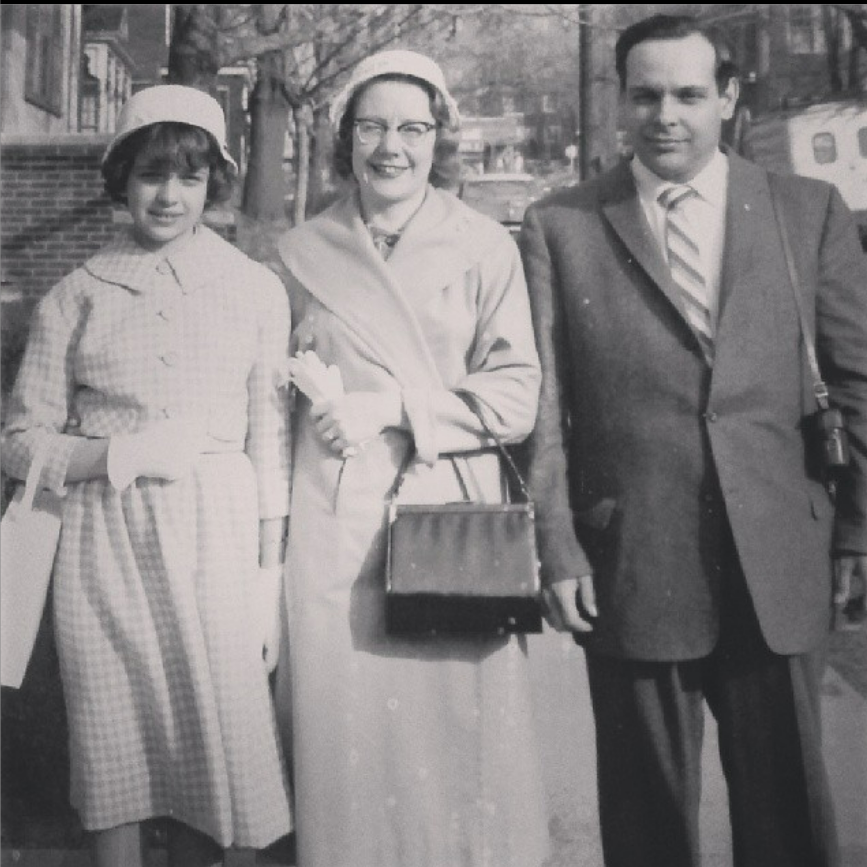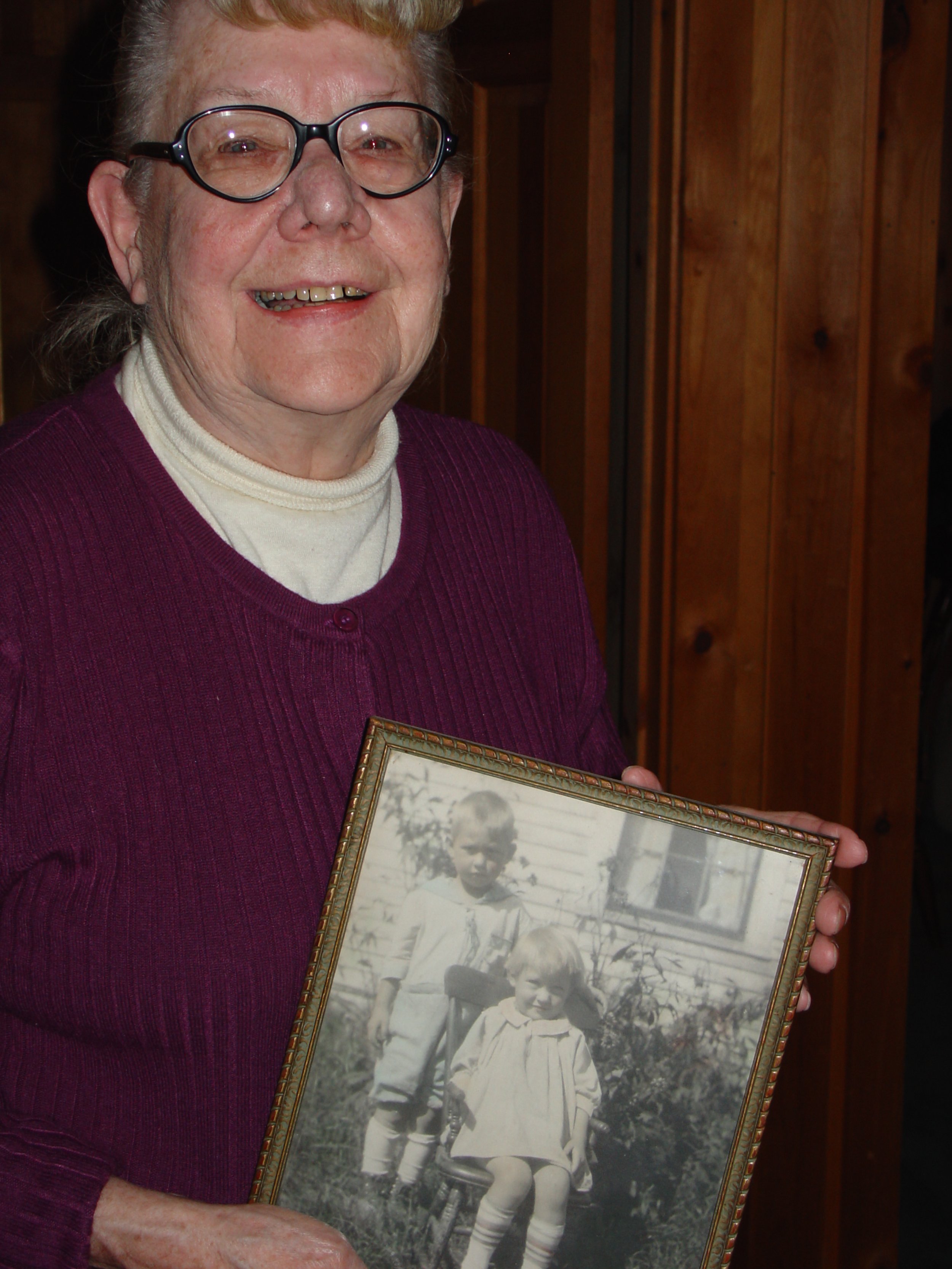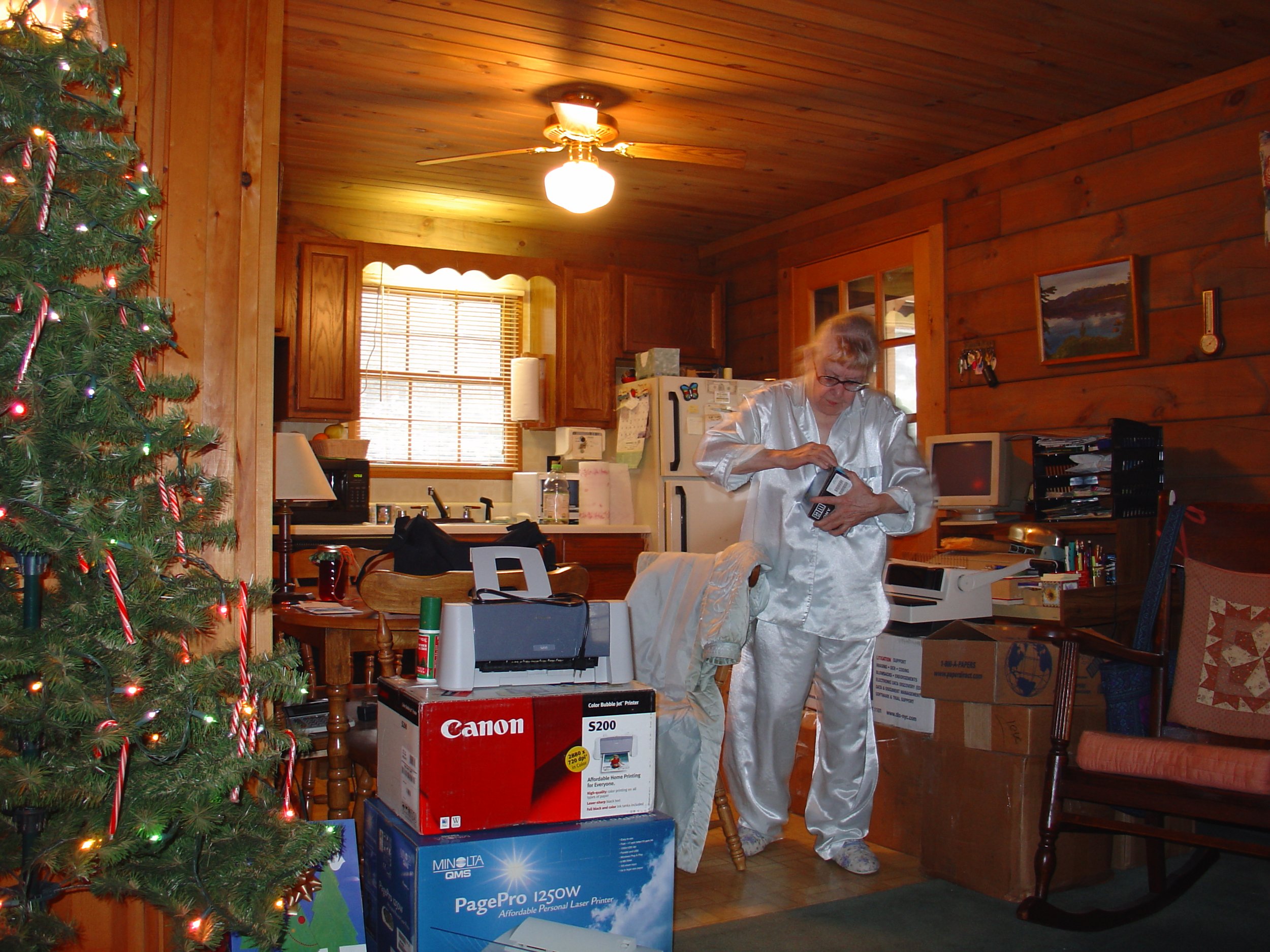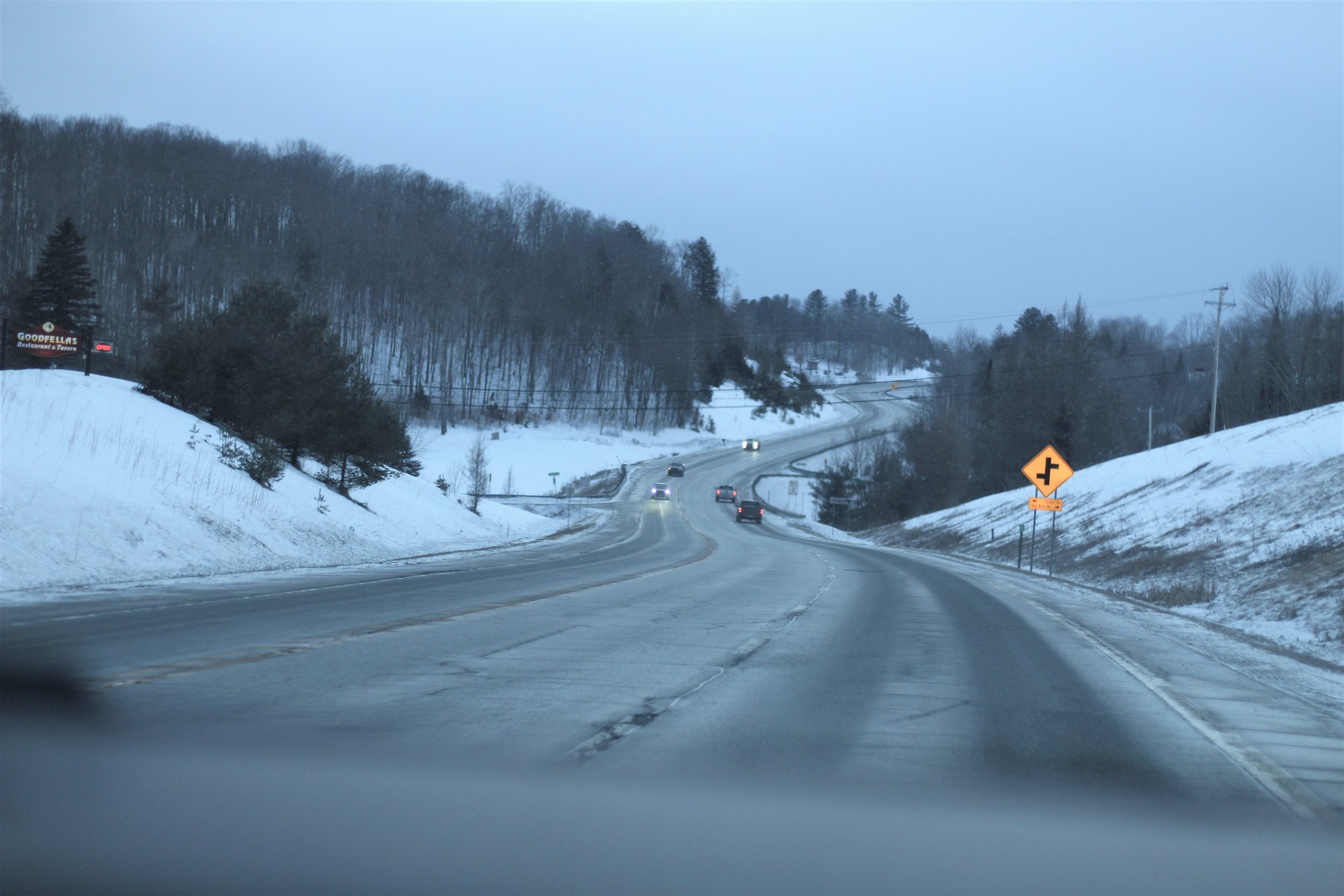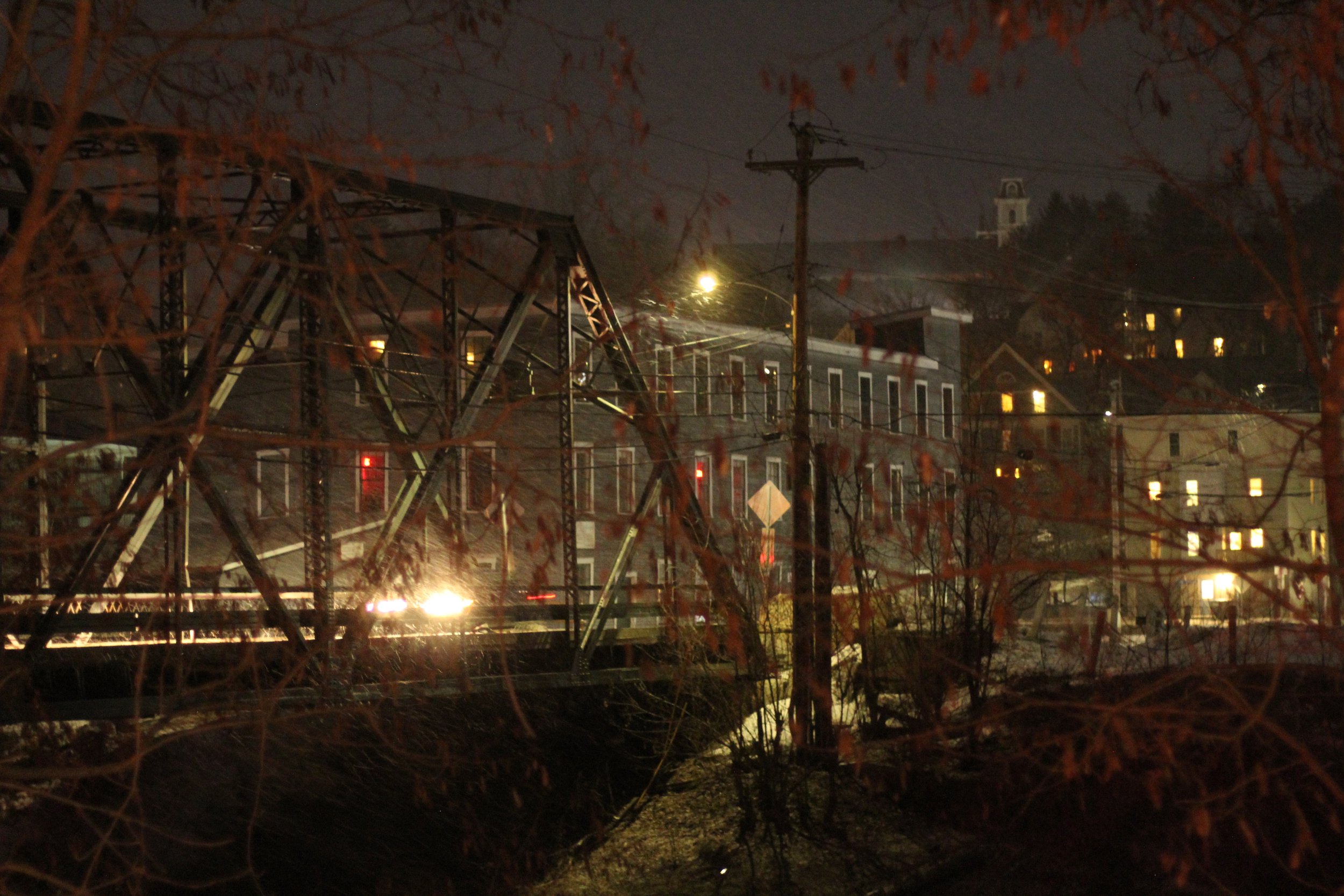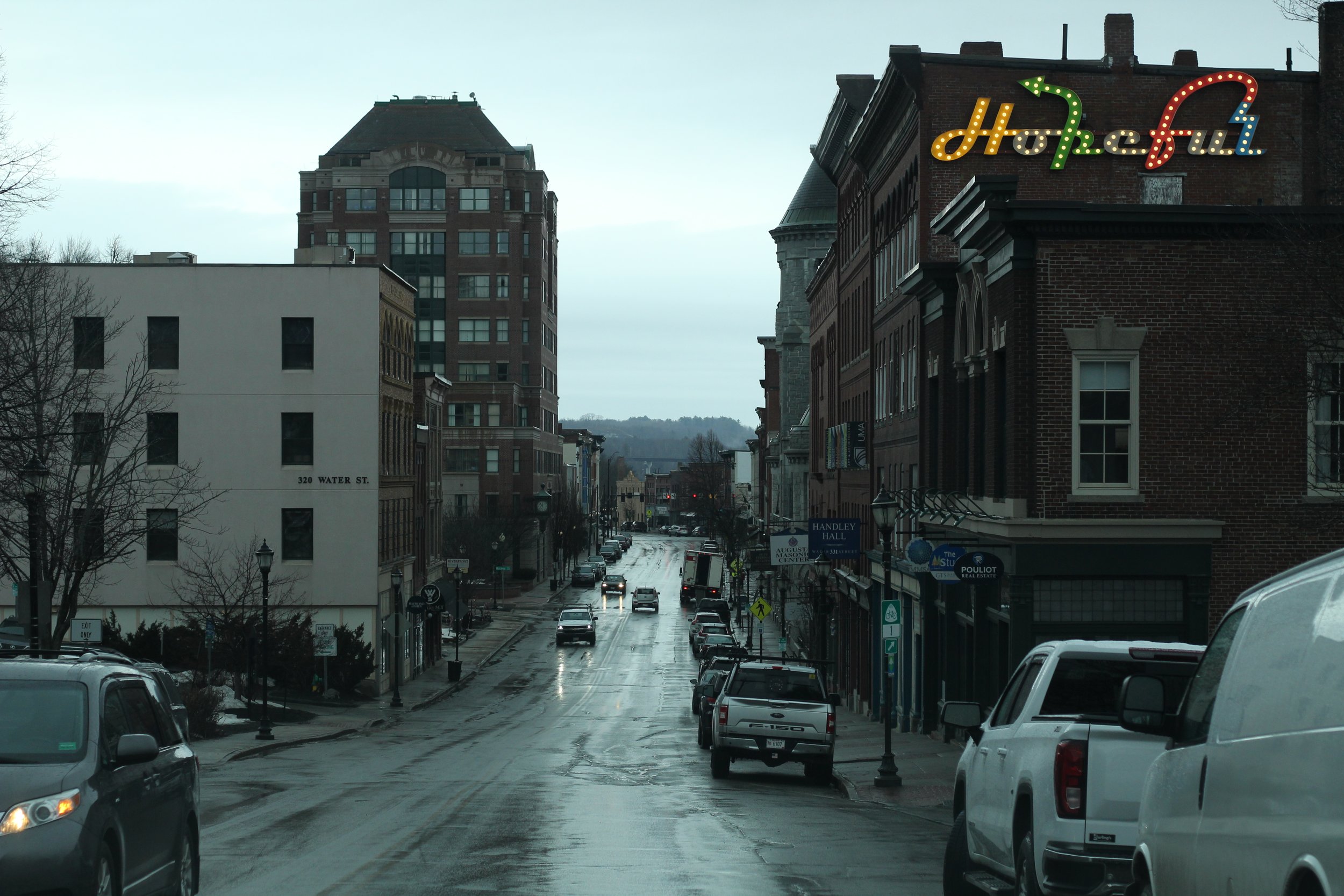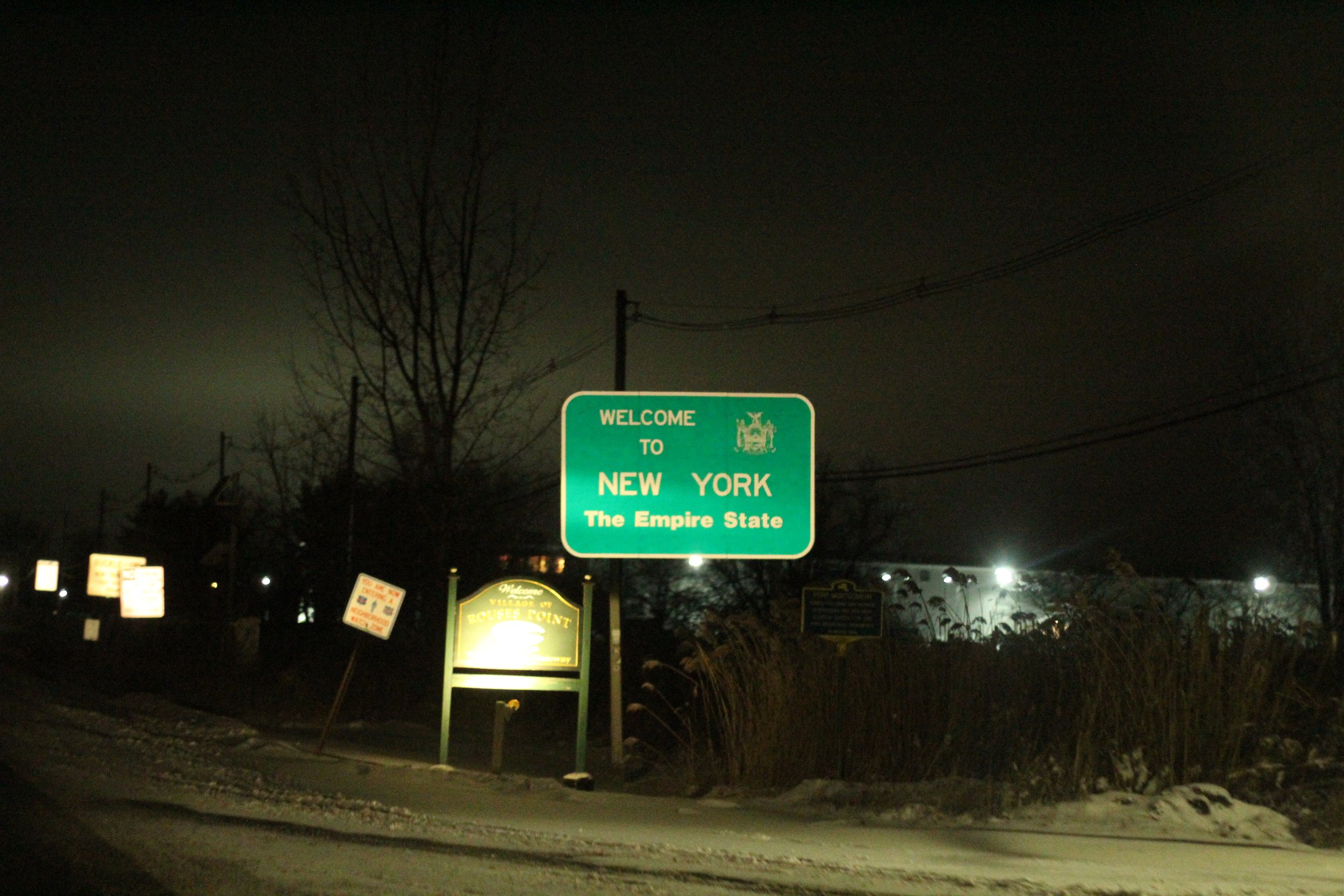MY FIGHT TO FREE AMERICANS FROM MODERN DAY SLAVERY
77 MILLION WITH CRIMINAL RECORDS BELONG TO A GROWING UNDERCLASS. MY COURT FIGHT TO BE AN OUTDOOR GUIDE COULD FREE THEM.
Photo credits: courtesy of the author.
THE FREE LANCE NEEDS YOUR DONATIONS TO SURVIVE. DONATE HERE.
This is the story of one man's legal fight in three states to free himself and 77 million Americans like him with criminal records from socio-economic slavery.
There is no redemption in the Digital Age. The Internet is merciless. A person's past crimes exist forever. Combined with ever-expanding background check requirements mandated by an increasingly surveilled, regulated and risk-averse society, digitized criminal records drive 21st Century digital-powered Jim Crow.
Jim Crow laws enforced white supremacy across the American south before 1960-era federal Civil Rights Acts were supposed to have ended it. But a New Jim Crow took hold all across America as the 20th Century ended and the 21st began. Since the Civil Rights Acts outlawed explicit racial discrimination, the New Jim Crow uses criminal convictions as a proxy for disfavored races and relegates former criminal offenders to second-class citizenship.
This Digital Jim Crow also enforces class-based discrimination. It makes sure poor people stay that way—whatever their race.
Here's how it oppresses. 77 million Americans of all races and genders—about one out of every four—have completed serving sentences for long-ago crimes but remain shackled to their pasts by criminal records that persist forever, according to the US Chamber of Commerce. They belong to a burgeoning underclass condemned to "extreme rates of unemployment" and poverty. They lose between $78 to $87 billion in collective wages each year.
The fortunate few “who did find jobs struggled, too," according to the Prison Initiative. A criminal record reduces one’s annual earnings by around 50 percent per year, adding up to an average lifetime loss of around $500,000. One conviction alone reduces lifetime earnings by about $100,000. Just a misdemeanor slashes annual earnings by more than 15 percent.
"That is a moral outrage," the Chairman and Chief Executive of JP Morgan & Chase, Jamie Dimon declared in a 2021 New York Times Op-Ed.
"This group is ready to work and deserves a second chance—an opportunity to fill the millions of job openings across the country," Dimon wrote. "Yet our criminal justice system continues to block them from doing so."
The Modern Day “Bridge of Sighs” at the old Tombs in Manhattan, Mar. 16, 2015. Photo Credit: JB Nicholas.
By 1990, Crack turned New York City into America's murder capital with 2,605 homicides. During the "Crack Wars" Crack dealers regularly dueled to the death over street corners with semi-automatic handguns. Stick-up kids preyed on the dealers, their customers and anyone else who had the bad luck to stumble into their gunsites. Crack addicts, called Crack-heads, roamed the streets like zombies, springing to life now and then to rob, steal and terrorize. Cops were overwhelmed, or corrupt.
Living between the Bronx and Yonkers, this was the world that shaped me. 19 in March 1990, I shot and killed one of the stick-up "kids." The 26-year-old career criminal was armed with a gun and about to rob me and three companions on the Mt. Vernon side of the Bronx border. He ran away. Across a small railroad bridge where he collapsed out-of-sight. We didn't think the man was hit, because he didn't show any sign of being hit.
Police did not find a gun when they found his body—by then his corpse had been laying on the street for hours.
A police report prosecutors turned over to me suggested the gun I saw him with may have been picked up by passersby. Richard Solano told police the two men had been friends for 15 years. But when Solano discovered his friend's body, hours before police arrived, he did nothing.
According to the report, he claimed he encountered “two black men” who “said they saw a white boy shot dead on the corner” and that “they would call the police” so Solano “went to White Plains Road and went to Sammy's deli and bought chips and a soda."
Cops were incredulous. They wanted to know, “If you say that you have known the victim for 15 years, why then did you not call for an ambulance or the police?"
Solano replied he “felt nervous and I did not know how to react.”
Self-portrait inside closed New York State prison the author was once incarcerated in. Photo Credit: JB Nicholas.
Eight months later, I was arrested on my way to visit a friend in Yonkers and give his mother a Christmas wreath. Detectives delivered the wreath instead.
I served almost 13 years in prison for second degree manslaughter. I swore to myself I would come out better not worse and I did. I mastered and taught de-escalation techniques, reported for a prison newspaper, earned a college degree and taught myself the law. I won my first lawsuit, my second lawsuit and a third lawsuit.
With official approval, I set up my "office" in the prison’s law library and "'practiced' his craft as a jailhouse lawyer," a federal appeals court found in a 1999 decision. I assisted 1000s of other prisoners in all kinds of legal matters. I even got a few released from jail. I helped everyone.
Everyone included the founder of the Latin Kings, Luis "King Blood" Felipe, who I got released from solitary confinement. It also included the founder of the Bronx's notorious Sex, Money, Murda gang, Peter "Pistol Pete" Rollack, who faced the death penalty if he lost at trial. I advised him to plead guilty so that he could "live to fight another day," and he did.
I also won not one not two but three landmark prisoners' rights court decisions.
The first case established prisoners' right to organize for political expression in 1999. What was so big about that case was that I had to argue around a Supreme Court decision which allowed prison officials to ban all kinds of inmate unions. After that victory, I founded America's first prisoner-run, prisoners' rights organization in 2001.
New York Law Journal report announcing forming of the first prisoner run, prisoners’ rights organization in America, July 6, 2001; and the author (c) surrounded by law library colleagues before his 2003 parole. Photo credit: courtesy of JB Nicholas.
Through the organization, we raised funds to publish newsletters on subjects like parole. We wrote Op-Eds on criminal justice issues which we mailed to newspapers, news magazines, friends, family and supporters. We orchestrated letter-writing campaigns to elected representatives asking for fairer laws and treatment, published "white papers" and held educational classes.
Our group litigated two federal class-action lawsuits that sought to defend the constitutional rights of every single prisoner in New York State. Nicholas v Goord challenged mass DNA extraction without individualized suspicion and probable cause. And Barna v. Travis challenged the illegal elimination of parole for violent offenders by administrative fiat.
We lost both cases but we were fighting mass incarceration as it was happening.
While we lost Barna, our group won a similar challenge in state court called Dennie Chan v. Brion Travis.
Dennie walked into my law library office and told me his story. He was an alleged former Green Dragons gang member with an exemplary prison record and zero disciplinary infractions. The Parole Board denied him parole simply because he'd been in a gang that killed a rival in a shootout.
"The serious nature of the instant offenses precludes release," the parole board decision denying him said.
It didn’t matter how well he behaved during his sentence. According to their logic, the "serious nature" of the crime itself annulled the chance to get paroled. But the sentence the legislature authorized and the judge imposed did allow parole.
Acting State Supreme Court Justice Edward A. Sheridan agreed with our argument that parole commissioners were denying release to prisoners with violent felonies en masse, without the individualized consideration state law required.
"The board has clearly acted ultra vires in this case," Justice Sheridan wrote in his Feb. 7, 2003 decision.
The decision was so powerful it made the system fairer for everybody, Karen Murtagh, Executive Director of Prisoners Legal Services of New York, told me in 2019.
"It was a terrific decision," she said. It "helped pave the way to many more successful challenges to the Parole Board’s cursory review of people’s accomplishments and rote use of the statutory language."
Swati Singh (l), the author (c) and (r) Dennie Chan in 2004. Photo credit: courtesy of the author.
I was paroled Bastille Day, July 14, 2003. I'd served 12 years, 8 months and was released before the end of my maximum 19 year sentence based on good behavior. I found a job working as a paralegal for criminal defense legend Ron Kuby and enrolled in New York University.
In 2023, Kuby recalled those years:
I quickly began to trust Nick both professionally (he could get the job done) and personally, as in, 'I'm stuck in court, can you pick up my 11-year-old daughter at school.' Seldom have I met a person who worked so hard to remake his life in prison. While he looked back with regret at what he had done, he neve let it define him.
I drafted the winning brief in an appeal Kuby won in New York's highest court, the Court of Appeals. The 2004 decision, Chang v Goord, established prisoners' legal right to jail-time credit toward a New York sentence for time-served in federal custody on federal charges that get dismissed.
After we won his lawsuit against the Parole Board, Dennie Chan was paroled too. We both ended up living in the West Village. I lived on Sullivan Street, he lived a block away on Thompson. While I went to NYU, Dennie went to Parsons. We met up for beers in local bars and went for long walks through lower Manhattan on weekends. We'd done something extraordinary, him and I, and it bonded us forever.
We went to hell and came back victorious, with the Devil's head in our hands.
Then we both graduated college and both went separate ways and both stayed free.
I could've gone to law school and maybe become a lawyer. That meant gambling three years of my life and $200,000 on the at best 50/50 chance authorities would overlook my felony and grant me the license needed to actually work as a lawyer, legally.
I became a journalist instead. I picked up a camera and a police scanner and started chasing breaking news around the City.
Two days into 2007, Subway Superman Wesley Autrey saved a young man who had a seizure and fell onto the tracks in front of a subway train in Harlem. I captured photographs of Autrey reuniting with his children on the street afterward. I sold photographs to Newsday and the Associated Press. Newsday published one on its front-page the next day.
That same morning, I got a phone call from the New York Post.
The author’s first front-page photograph in the now-defunct New York Newsday, Jan. 3, 2007. Photo Credit: JB Nicholas.
"I'll take you as I found you." That's how David Boyle wiped away my sins and gave me a new life as a journalist.
Boyle was the British Director of Photography at Rupert Murdoch's Conservative New York Post. Not Boyle not Murdoch not the Post is known for bleeding heart-ism of any kind. They judged me on the merits of my work, my news photography, alone. I was a natural photojournalist, and I hustled. It was the best job I ever had. It felt like I was born to do it. I loved just about every actual single second of it.
That's how I blazed a path literally from Rikers Island to the White House—where I photographed then-President Barack Obama awarding the Presidential Medal of Freedom to Bob Dylan on May 29, 2012.
Pres. Barack Obama awarding the Presidential Medal of Freedom to Bob Dylan at the White House in 2012. Photo Credit: JB Nicholas.
That May was crazy. I also photographed an Anarchist May Day protest, the MET Gala, Mary Kennedy's funeral, Chinese dissident Chen Guangcheng, a/k/a, the self-taught “barefoot lawyer,” Megan Fox, Will Smith, Simon Cowell, Sacha Baron Cohen, Mila Kunis, Nicole Scherzinger, Mariah Carey, Linda Evangelista, Jude Law, Jessica Alba, Lea Michelle, Corey Monteith, Leelee Sobieski, Leslie Moonvees, Alec Baldwin, Amanda Peet, Britney Spears, Bret Michaels, Clive Owen, Demi Lovato, Thom Yorke, Phil Selway, Ali Larter, Zoe Saldana, Kristen Stewart, Billy Crudup, Justin Timberlake, Jessica Biel, Gloria Allred and Jada Pinkett Smith.
I was so caught up in the mix that month I didn't even bother to photograph myself inside the White House. I went in, did my job, and left. I wasn't about to do anything that could be wildly exaggerated into something that could jeopardize my being there. No standing up on the podium in the briefing room for a self-portrait. Not a single selfie. Nothing.
The only thing I allowed myself was a first-class Amtrak Acela train ride back to New York.
The next morning it was back to work as usual. I rode my bicycle from my Brooklyn home over the Williamsburg Bridge into Manhattan at 6:00 am and I didn't ride back until midnight.
Newspaper jobs and money vanished as free, Internet-based news blogs proliferated. In the media industry's socially-engineered version of musical chairs, I got stuck without a seat when the music stopped.
Various celebrities and protests captured by the author in New York City during the month of May 2012. Photo credits: JB Nicholas.
My grandmother was born on a kitchen table in a farmhouse in Brooksville, Maine in 1925. Faye Ruth Austin came to New York after graduating high school during World War Two. She became a nurse, the first nurse to have a research paper published in the prestigious New England Journal of Medicine, the first female director of her hospital's intravenous therapy department and a citizen ambassador to China where she taught IV procedure.
Faye brought me with her to Maine for summers and holidays. That's where I learned to fish and caught my first trout.
Back home, I joined the Boy Scouts and kept fishing. In New York, I fished in rivers connecting the City's sprawling reservoir system. One day I saw someone fly-fishing and immediately decided I had to learn how to do it too. I taught myself its complicated casting techniques as well as how to create or "tie" the "flies" used for lures. Fly Fishing became my Zen.
The pandemic was a great time to fish. I became a better fisherman than I ever was as a kid. Living in nature for months at a time was also inspiring. I dared envision a future as a wilderness fly-fishing guide in New York, New Hampshire and Maine—where I'd discovered some of the best fishing spots during my pandemic Odyssey.
Officials in all three states wouldn't grant me the outdoor guide license their laws required outdoor guides to have. Not because I hadn't mastered the necessary outdoor skills but because of my three-decade old felony. Maine and New Hampshire wouldn't even let me take the tests. In New York, I passed the tests but officials just ignored my application after that.
All three states enforced the Digital Jim Crow against me.
(1) Faye Cosentino in the 1960s with her husband Alfonso Cosentino and their only child, Sharon; (2) & (3) Faye at Christmas in 2004. Photo Credits: (1) courtesy of the author (2) and (3) JB Nicholas.
My grandmother Faye went back to school in the 1970s and took classes at Mercy College with a black colleague. Sometimes she drove her friend home after class.
"Every time they drove through the Bronx and her friend was driving, they would be stopped by police on some trumped-up charge that could be characterized as 'DWB'—Driving While Black," one of Faye's closest friends, Abbie McMillen, recalled after Faye died in Brooksville, Maine in 2008.
"When Faye was driving they were never stopped," McMillen said at Faye’s memorial. "Faye was outraged."
Faye asked her friend how she could tolerate it. Her friend answered it "came with the territory, and she had to learn to accept it as she could not change it."
This, McMillen said, "was monumentally frustrating to Faye, who constantly worked to change things that she knew were wrong."
"Faye was fond of saying 'If you see something that isn't right, do something about it, don't just complain,'" her 2008 Bangor Daily News obituary emphasized.
I always knew I carried a big piece of my grandmother within me, but I didn’t know how much until she died.
The road to Augusta, US Route 2. Photo credits: JB Nicholas.
Maine allows former felons to apply for special permission to become a guide.
The process places the burden of proof on the license applicant. The applicant has to prove they're "sufficiently rehabilitated to warrant the public trust." The burden isn't on Maine to prove they're still criminals. It’s the other way around. It’s on the applicant to prove they're not. In Maine, you're still guilty until you prove you're innocent. Not innocent until they prove you guilty.
That's the first problem. The second problem is Maine law doesn't explain what, exactly, a person has to show to prove they're "sufficiently rehabilitated to warrant the public trust." It’s up to officials to define what "sufficiently rehabilitated to warrant the public trust" means on a case-by-case basis. There are no objective guideposts. The standard is too vague.
I traveled to Maine's capital, Augusta, to state my case on the record last February with my partner. It was a 300 mile drive from our Adirondack home to the Department of Inland Fisheries's headquarters, on the banks of the Kennebec River.
Old farms, sugar houses and country stores flashed past as we sped through the snow-covered winter landscape. Chimneys spouted smoke from wood stoves. It was cold, wet and gray. But when we finally arrived in Augusta an illuminated, rainbow-colored sign surprised us. "Hopeful," the bright sign said.
The place looked like it needed hope, and needed a lot of it.
Homeless drug addicts gathered under a bus shelter by a parking lot next to the Department's generic, two-story concrete-and-brick headquarters. A giant wood-carving of Maine's first licensed guide, Cornelia "Fly Rod" Crosby, stood just inside the front door. She didn’t look happy to see us.
A uniformed law enforcement officer, a Maine game warden, searched us with a handheld metal detector.
Cornelia “Fly Rod” Crosby greets visitors to the headquarters of the Maine Department of Inland Fisheries in Augusta. Photo credit: T.A. Stacy.
Once inside the hearing room, the same officer who searched us transformed into the lead hearing officer in charge of conducting the hearing. Two other people completed the three-person panel. One of them was another law enforcement officer, a colonel in command of the law enforcement component of the Department's operation. The third appeared to be a civilian employee.
The guard-turned-hearing-officer took his seat between the two other men behind a conference table. He placed a giant coffee mug with a Blue Lives Matter flag on the table in front of him, pointed directly at me. The message couldn't have been clearer.
Ten people submitted written statements testifying I was rehabilitated. One of them was photojournalist Charles Eckert, who worked for Newsday for more than two decades. I met him on a remote residential block in Queens in 2007. The NYPD's elite Emergency Services Unit was attempting to capture a bull that escaped during a ride to the slaughterhouse.
“I was generally wary of new photojournalists,” Eckert's statement said, “but my wariness of Jason changed moments later when the bull turned around and charged straight toward us .... He quickly identified a safe location the bull couldn't easily access—the porch of a nearby house—and dashed toward it, leading us to safety.”
"From the early days of our friendship," Eckert explained, "he was upfront and honest about the crime he had committed and the remorse he felt for it. It was clear that he was rehabilitated."
Kuby, my legal mentor, wrote:
I don't know the skills needed to be a Maine trail guide .... But the skills that Nick brought to news photography and reporting—good judgment, patience, clear thinking in emergencies and being intrepid without being reckless—probably translate well. And Nick is very good at taking care of people to whom he has made a commitment; it's the reason why he was given such extraordinary access to people's lives and stories.
An eleventh witness testified in my favor live via video link. Joel Kurtzberg is a partner at a world-renowned law firm. We worked together for years and reformed the NYPD's press credentialing system so that it couldn't be used as a tool for censorship. Kurtzberg said that if I wasn't rehabilitated "no one is."
It was snowing when we left Augusta. Soon the snow turned into a blizzard.
The hearing panel's job was to find facts and make a recommendation to the Commissioner of the Department of Inland Fisheries. The Commissioner makes the final decision. Judy Camuso is the Department's current commissioner. She's trained as a wildlife biologist.
"If granted a guide license Nicholas would be entrusted with the safety and welfare of adults and children under his charge," Camuso wrote in her decision, which I got two months later. His clients "may have little or no experience engaging in such activities in the woods or on the waters of the State of Maine."
"I do not find," she concluded, "that the evidence presented, including the testimony of Nicholas' witnesses, supports a conclusion that he has been sufficiently rehabilitated to warrant entrustment with a Maine guide license."
The long road back to New York, Feb. 17, 2023. Photo credit: JB Nicholas.
The U.S. Constitution protects Americans from tyranny and Government oppression by guaranteeing citizens legal rights and liberties. The Civil Rights Act of 1871 creates a powerful mechanism to make sure officials in every state and local bureaucracy in America respect these freedoms.
The 1871 Act enacted Title 42, Section 1983 of the U.S. Code to empower people to sue officials in federal court for allegedly violating the Constitution. Invoking Section 1983, I sued state officials in New York, New Hampshire and Maine for violating my Constitutional rights by denying me a guide license.
Broadly stated, the Supreme Court recognizes two kinds of constitutional rights: the first are rights explicitly guaranteed by the Constitution. For example, the 1st Amendment explicitly protects "freedom of speech." The second kind of rights are "implicit in the concept of ordered liberty." These are protected by the 14th Amendment's Due Process Clause.
14th Amendment rights include the right to work or choose an occupation. The remarkable 1957 Supreme Court decision that rejected McCarthyism, Schware v. Board of Bar Examiners, applied the Due Process Clause to occupational licensing.
"A State cannot exclude a person from the practice of law or from any other occupation," the Court wrote, "in a manner or for reasons that contravene the Due Process or Equal Protection Clause of the Fourteenth Amendment."
Basic or fundamental due process means individualized consideration. Rules or presumptions that automatically exclude applicants for a particular occupational license violate due process because they deny individualized consideration.
The First Amendment also explicitly protects the speech and association which is central to guide work. The Supreme Court held in 2000 that shared outdoor activities "like camping, archery, and fishing" are "expressive activity" protected by the First Amendment. Two federal courts of appeals have also ruled guiding is unquestionably protected by the First Amendment.
Restrictions on First Amendment rights generally trigger strict judicial scrutiny—which is usually fatal to the particular Government regulation under review.
New York Gov. Kathy Hochul. Photo Credit: screengrab via YouTube.
In New York, business leaders and criminal justice reform advocates built the Clean Slate movement. In 2023, they convinced the state legislature to pass the Clean Slate Act. Gov. Kathy Hochul signed it into law on November 16.
New York's Clean Slate Act automatically seals the records of most felonies, including the one I was convicted of, if the offender stays out of trouble for 8 years. Based on the Clean Slate Act, New York issued me a guide license on December 4.
The Federal judge assigned to decide my Section 1983 lawsuit against New York officials also allowed it to proceed for damages. The precedent-setting October 24 decision specifically ruled outdoor guiding is protected by the Constitution.
I’ve also asked New York’s highest court to allow me to take the test to become a lawyer.
Meanwhile in New Hampshire, a federal magistrate judge recommended that my lawsuit there be allowed to proceed too.
"Mr. Nicholas has alleged sufficient facts for his First Amendment freedom-of-speech claim to survive defendants’ motion to dismiss. In particular, Mr. Nicholas has plausibly alleged that the guide license scheme is not narrowly tailored," Magistrate Judge Andrea K. Johnstone wrote in her December 28 report and recommendation.
Now it’s up to New Hampshire's Chief Federal Judge, Landya B. McCafferty, to issue a final decision.
After I got served with a heartbreaking loss in Maine, I appealed the dismissal of my lawsuit to the First Circuit Court of Appeals. My appeal has kept the excellent judges there knotted for six months now—suggesting they are taking the case very seriously.
If the First Circuit rules in my favor, it could effectively liberate more than 16 million Americans in its jurisdiction in Maine, Massachusetts, New Hampshire, Rhode Island and Puerto Rico by placing constitutional limits on criminal background checks.
If it does, Maine is likely to apply for permission to appeal to the Supreme Court. And if I lose, I'm definitely applying for permission to appeal. If the Supreme Court takes the case, then every single American with a criminal record could be liberated from modern day slavery—if it rules in my favor.
Opening day for Maine's 2024 trout and salmon fishing season is April 1.
Self-portrait, Dover Stone Church, New York, 2015. Photo credit: JB Nicholas.
THE FREE LANCE NEEDS YOUR DONATIONS TO SURVIVE. DONATE HERE.
